
- Code of Ethics
- Dissertation Editing
- Dissertation Coaching
- Free Consultation

Choosing a Thesis Advisor: A Complete Guide
One of the most important choices that you will make about your dissertation or thesis happens before you write a single word. Choosing a thesis advisor or dissertation advisor (often referred to as a dissertation chair) will have a significant impact on your entire dissertation writing experience, and for many years to come. For many doctoral students, their thesis advisor is their single greatest influence in graduate school.
Selecting a thesis advisor is a big decision with far-reaching implications. The stakes are very high, and it is imperative to choose your thesis advisor wisely. There are many factors to consider when choosing a thesis advisor, from expertise to personality, and it pays to think carefully and weigh your options before approaching a faculty member to chair your dissertation committee . While there are subtle differences between a dissertation chair and a thesis advisor, we’ll focus on the commonalities in this article.
These are commonly asked questions about selecting a thesis advisor:
- What does a thesis advisor do?
- How should I choose my thesis advisor?
- What makes a faculty member a good thesis advisor?
- What if it doesn’t work out with my thesis advisor?

Thesis Advisor Responsibilities
While writing a dissertation is a largely solitary pursuit, a good thesis advisor will be with you every step of the way. While you are very much in the driver’s seat, it is your thesis advisor’s job to keep you off the guardrails. And deploy the airbag, if necessary. There are a few purposes that your thesis advisor will serve during your time together.
Guidance . While the dissertation process is new to you, your thesis advisor will know it very well. She will help you navigate the obstacles and pitfalls that have derailed many projects–department politics, university regulations, funding, research opportunities, etc. Your thesis advisor will also serve as a sounding board as you distill the nebulous concept of your research project into a fully-formed idea that you can move forward with.
Organization . A good thesis advisor will run a tight ship and keep your dissertation project moving like clockwork. As a researcher, it’s very easy to get lost in the minutiae of the literature, and it’s not difficult to find yourself trapped down a rabbit hole of scholarship. Regular milestones set by your thesis advisor are a great way to stay on track and maintain forward momentum.
Mentorship. While an effective thesis advisor will ensure that you see your project to fruition, a great one will be with you for decades. Though I graduated with my Ph.D. in 2012 and I’m now an associate professor myself, my thesis advisor remains a guiding light in my career. Your thesis advisor can be a cornerstone of your professional network.
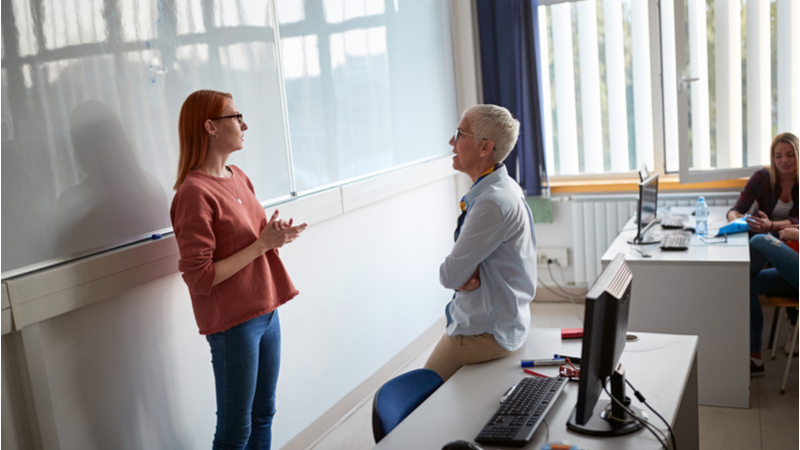
Choosing a Thesis Advisor
So, how do you select a faculty member to chair your dissertation committee? With extreme care. Once you have set your sights on a dissertation chair or thesis advisor, the next step is the Big Ask. I remember being very nervous to approach the faculty member who became my chair– it seemed like such an imposition, but, as a grad student in her department, I was already on her radar. Keep in mind, your faculty members are expecting to be asked to chair dissertation committees, and they may even be a little flattered that you chose them.
While chairing and serving on dissertation committees is a requirement for the tenured and senior faculty members in your department, it’s a lot of work. Make no mistake: accepting the role of your dissertation chair makes them nervous, too. As a faculty member, I can say with absolute certainty that a good dissertation chair will be almost as invested in your dissertation as you are.
What Makes a Strong Thesis Advisor?
There exists a gulf between what many students desire in a dissertation chair or thesis advisor and what they actually need. While there may be a temptation to approach one of your department’s superstar faculty members to chair your committee, this may not serve you in the long term. Faculty members who have made a name for themselves through an abundance of publications, grants, awards, and conference appearances typically have jam-packed schedules, and it may be difficult for them to make you and your dissertation a priority.

A safer bet that is likely to have a more rewarding outcome is to work with a faculty member who has already shown enthusiasm for your work. Select a thesis advisor who makes time for you, and one who always responds to your emails. This is the person you want in your corner during the sometimes stressful journey of researching and writing a dissertation. Also, it never hurts to spend some time talking to potential dissertation chairs or dissertation advisors. Get all of your questions answered, and then make a decision.
What If It Doesn’t Work Out?
The possibility that your thesis advisor is a bad fit for your project or is incompatible for some other reason is a worst-case scenario that lurks in the furthest reaches of every graduate student’s mind. There’s no way to sugarcoat it: this is not a good situation to be in, and it can derail dissertations. The soundest strategy for dealing with an internecine conflict with your thesis advisor is prevention.
This is why it is vital to do your homework and put a lot of thought into choosing your thesis advisor. Find someone you are compatible with and make sure you’re on the same page. Check in with them regularly, and keep them updated. Clear communication is a great way to ensure a solid partnership with your dissertation chair. Don’t forget, your dissertation chair should also be making your success a priority. You should be comfortable enough to ask questions and let them know what’s on your mind.
The good news is that a bad fit isn’t likely to happen. Most grad students have a completely workable relationship with their dissertation chairs, and for many it turns into a long friendship built on mutual respect and admiration. Personally, every time I serve on a doctoral student’s dissertation committee, I feel a tremendous amount of pride and satisfaction when they take their place in the academic world. It’s truly an honor to help them achieve such a major milestone in their academic career, and I’m delighted to be part of it.
Related posts:

Courtney Watson, Ph.D.
Courtney Watson, Ph.D. is an Associate Professor of English at Radford University Carilion, in Roanoke, Virginia. Her areas of expertise include undergraduate and graduate curriculum development for writing courses in the health sciences and American literature with a focus on literary travel, tourism, and heritage economies. Her writing and academic scholarship has been widely published in places that include Studies in American Culture , Dialogue , and The Virginia Quarterly Review . Her research on the integration of humanities into STEM education will be published by Routledge in an upcoming collection. Dr. Watson has also been nominated by the State Council for Higher Education of Virginia’s Outstanding Faculty Rising Star Award, and she is a past winner of the National Society of Arts & Letters Regional Short Story Prize, as well as institutional awards for scholarly research and excellence in teaching. Throughout her career in higher education, Dr. Watson has served in faculty governance and administration as a frequent committee chair and program chair. As a higher education consultant, she has served as a subject matter expert, an evaluator, and a contributor to white papers exploring program development, enrollment research, and educational mergers and acquisitions.
Comments are closed.
How to Finish Your Dissertation in Half the Time
Learn how to avoid the pitfalls preventing you from finishing your dissertation faster.
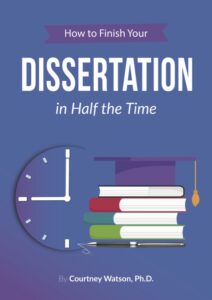
Subscribe to get the free eBook!
Dr. Courtney Watson In the News
“ See It for Yourself ” in With Good Reason: Beyond the Book July 22, 2022
“ I Thought You’d Never Ask: Consent in Contemporary Romance ” in New Frontiers in Popular Romance (McFarland) June 13, 2022
- Common Errors
- Dissertation Success
- Presentation
- Quantitative Analysis
- Surviving Grad School
“How to Finish Your Dissertation in Half the Time”
- Skip to Content
- Catalog Home
- Institution Home
- Graduate Catalog /
- Academic Resources /
- Advising & Mentoring PhD Students /
Choosing a Dissertation Advisor
Introduction.
While some graduate groups may assign an advisor to a student upon admission to the program, in many graduate groups the responsibility for finding a dissertation advisor rests with the student. The choice of a faculty member who will supervise the dissertation work required to fulfill degree requirements is one of the most critical decisions a graduate student will make. A student will spend several years working with the faculty member of choice, and that choice will significantly affect the direction of the student’s career. Choosing a dissertation advisor, therefore, is an extremely important decision for doctoral students, although it is not immutable, as will be discussed later.
A student undertaking dissertation work needs an advisor who will be not only academically competent in a particular area but also willing to act as the student’s advocate when necessary. It is important that the student be able to work and communicate effectively with the advisor and not feel overwhelmed or intimidated in the relationship. Dissertation work can be lonely and isolating, and support from an advisor can be a crucial connection. Each student requires the guidance of someone who will stimulate thought, who has sufficient interest in the student’s topic to produce new insights jointly, and who will challenge the student to think in a novel manner about the research.
Obtaining Information on Potential Advisors
Advisors generally serve as the dissertation supervisor. Students should be familiar with the University rules about who can supervise dissertation research and serve on a dissertation committee. Several resources and strategies can help students identify an appropriate faculty advisor, as follows.
The graduate group website or handbook is a valuable source of information on potential advisors. Many graduate groups have developed websites that profile affiliated faculty members, including their areas of research, recent publications, and other academic activities. Literature searches can provide further information on the publications and preferred journals of particular faculty members. The graduate group chair can also provide valuable advice on potential advisors and can help students to become familiar with any specific graduate group policies on supervision.
Students can get to know potential advisors by taking a course, doing a lab rotation, acting as a teaching assistant, and/or attending seminars and other presentations by the faculty member.
Graduate students currently working with the potential advisor are an invaluable source of information. Students who are working or have worked with a particular advisor can be asked about their experience with that advisor and about the advisor’s expectations and working methods. Getting to know these students is also useful because anyone choosing to work with a faculty advisor would likely have close, future interactions with their students. Talking to multiple students is always encouraged given the possibly strong and differing opinions one might hear.
Students should make an appointment to meet potential advisors. Meeting a potential advisor is an essential step in determining whether a faculty member would be a good fit in terms of mentoring and interpersonal style and research interested. The following is a list of issues that might be covered in such a meeting:
- How many graduate students do you advise? (Students may not want to pick a faculty member who has too many students already.)
- Typically, how often do you meet with your students?
- Typically, how much time do you expect students to take to complete their dissertation?
- How will we agree upon my research topic?
- Are there sufficient funds available for the research project?
- What will be the sources of my stipend/funding? What are ways you can provide assistance for finding additional funding if/when my stipend expires?
- What level of independence is expected of your graduate students?
- Is there any specific knowledge I need to have before starting to work with you?
- Will I have the opportunity to attend conferences? Publish papers? Present work at colloquia? Are there funds available for me to do so?
- Are you planning a sabbatical leave soon? If so, what arrangements for continued supervision will be made during your absence?
- What opportunities would I have in this area of research when I graduate?
- How do you typically assist students on the job market?
- Will guidelines be drawn up for working together?
- How will I receive feedback on my progress?
These questions are designed to help the student and the potential advisor determine whether a good match exists. Where appropriate, the student may also want to ask about the order of authorship on publications and intellectual property issues.
For students who are able to pick an advisor, the choice of a dissertation advisor is a decision to be made with a great deal of care and consideration. Discussion of the topics listed above will also give faculty members a sense of what students expect in terms of meetings, feedback, turn-around time on submitted work, etc. Taking time to explore these issues should result in a productive relationship for both student and advisor that culminates in a dissertation of original research, completed within a reasonable period of time.
Changing Advisors
There may be situations in which a student must change advisors. Some situations are beyond the student’s control; for example, when an advisor leaves the University or otherwise becomes unavailable. In other situations, the student may want to choose a different advisor; for example, if the focus of the research project changes to something outside of the current advisor’s expertise, or if work styles do not mesh well.
In these latter situations, students should understand that while there can be risks in changing advisors, it usually can be negotiated in a positive manner. Students deciding to change advisors should be sure to consult the graduate group for any specific policies and procedures that apply and be sure to ascertain if funding may change under a new advisor. Students should always be professional and respectful in interactions with the current advisor and potential new advisor and be certain that the proposed new advisor is willing and able to add them as a new advisee before discussing such a change with the current advisor. Students should focus discussions on interests and goals and not on negative incidents or difficulties. The potential new advisor, as well as leaders or other members of the graduate group, may have advice regarding how to broach this change with the current advisor.
Print Options
Print this page.
The PDF will include all information unique to this page.
A PDF of the entire 2023-24 catalog.
A PDF of the 2023-24 Undergraduate catalog.
A PDF of the 2023-24 Graduate catalog.
Tips on Finding a Primary Thesis Advisor
Here are some tips for finding and approaching a potential project advisor.
- Do online research to scout potential advisors and projects: Read a prospective advisor's website, paying particular attention to recent or ongoing work done with students. Familiarize yourself with the work they do before you meet with them.
- Attending research seminar talks: Seminars such as the Symbolic Systems Research Seminar (SYMSYS 280, 1 unit S/NC only, repeatable, offered Autumn, Winter, and Spring Quarters) and other department-based seminar series are good places to learn about faculty research, and you may want to speak with them afterward about current opportunities for students to work with them.
- Talk to other students: Ask in-project students about their project advisors, research groups, and how they found their thesis advisor.
- Take a course and go to office hours: Your primary advisor will ideally be someone with whom you have taken a course. Generally, enrolling in smaller seminars is recommended as seminars provide more opportunity for interaction and discussion. Take advantage of office hours to get to know the faculty member better and potentially start a conversation about their area of study and your own research interests. The best courses for leading into a research relationship are graduate courses with a research project component.
- Talk to faculty on an informational basis before you ask to work with them: Most faculty are willing to talk about their research during their office hours, but you should approach this with as much information before the meeting as you can get (e.g. by reading their website and published research ahead of time). It is okay to talk about your own interests, but you should relate them to what you know about the professor with whom you are meeting, and ask questions before deciding that this is someone you want to work with.
- Do Independent Research/Independent Study courses and/or limited commitment research projects with faculty before asking them to commit to being your thesis advisor : Once you have established a common research interest with a faculty member, through informational meetings and prior reading, you can ask a faculty member if they are willing to supervise you to do a one-quarter project with a well-defined goal, which might serve as a lead-in to a thesis project. Ideally, this should be something that will be useful to the faculty member regardless of whether it continues past this stage. Good research and communication style/personality fit is important, and both you and a prospective advisor will be in a better position to judge this after working together for a while. It is best to do this early in your M.S. career, before the PAS is due.
- Ask for recommendations: Some faculty may be unavailable because they have too many advisees already, have other commitments, or may have planned leaves of absence. If a faculty member is unavailable to serve as your advisor, you may ask them if they can recommend another potential advisor, and then you can repeat the process.
- Get to know others who are working with a prospective advisor: Through further discussions, you can ask a faculty member about joining lab meetings, and/or see about working together with others (graduate students, postdoctoral scholars, or other collaborators) who are working with the person you are interested in advising you. Your M.S. project may wind up being a collaboration with one of these people, with the professor supervising both/all of you and your collaborators.
- Follow up: you may need to follow up a few times if you do not get a response to your first email. Find out their office hours or make an appointment to discuss whether they are willing to serve as your advisor.
Notifications
Harvard key sign in.
CAPSLOCK key is turned on!
Dissertation Advisor 101
How to get the most from the student-supervisor relationship
By: Derek Jansen (MBA) | Expert Reviewer: Dr Eunice Rautenbach | January 2024
Many students feel a little intimidated by the idea of having to work with a research advisor (or supervisor) to complete their dissertation or thesis. Similarly, many students struggle to “connect” with their advisor and feel that the relationship is somewhat strained or awkward. But this doesn’t need to be the case!
In this post, we’ll share five tried and tested tips to help you get the most from this relationship and pave the way for a smoother dissertation writing process.
Overview: Working With Your Advisor
- Clarify everyone’s roles on day one
- Establish (and stick to) a regular communication cycle
- Develop a clear project plan upfront
- Be proactive in engaging with problems
- Navigate conflict like a diplomat
1. Clarify roles on day one
Each university will have slightly different expectations, rules and norms in terms of the research advisor’s role. Similarly, each advisor will have their own unique way of doing things. So, it’s always a good idea to begin the engagement process by clearly defining the roles and expectations in your relationship.
In practical terms, we suggest that you initiate a conversation at the very start of the engagement to discuss your goals, their expectations, and how they would like to work with you. Of course, you might not like what you hear in this conversation. However, this sort of candid conversation will help you get on the same page as early as possible and set the stage for a successful partnership.
To help you get started, here are some questions that you might consider asking in your initial conversation:
- How often would you like to meet and for how long?
- What should I do to prepare for each meeting?
- What aspects of my work will you comment on (and what won’t you cover)?
- Which key decisions should I seek your approval for beforehand?
- What common mistakes should I try to avoid from the outset?
- How can I help make this partnership as effective as possible?
- My academic goals are… Do you have any suggestions at this stage to help me achieve this?
As you can see, these types of questions help you get a clear idea of how you’ll work together and how to get the most from the relatively limited face time you’ll have.
Need a helping hand?
2. Establish a regular communication cycle
Just like in any relationship, effective communication is crucial to making the student-supervisor relationship work. So, you should aim to establish a regular meeting schedule and stick to it. Don’t cancel or reschedule appointments with your advisor at short notice, or do anything that suggests you don’t value their time. Fragile egos are not uncommon in the academic world, so it’s important to clearly demonstrate that you value and respect your supervisor’s time and effort .
Practically speaking, be sure to prepare for each meeting with a clear agenda , including your progress, challenges, and any questions you have. Be open and honest in your communication, but most importantly, be receptive to your supervisor’s feedback . Ultimately, part of their role is to tell you when you’re missing the mark. So, don’t become upset or defensive when they criticise a specific aspect of your work.
Always remember that your research advisor is criticising your work, not you personally . It’s never easy to take negative feedback, but this is all part of the learning journey that takes place alongside the research journey.

3. Have a clear project plan
Few things will impress your supervisor more than a well-articulated, realistic plan of action (aka, a project plan). Investing the time to develop this shows that you take your project (and by extension, the relationship) seriously. It also helps your supervisor understand your intended timeline, which allows the two of you to better align your schedules .
In practical terms, you need to develop a project plan with achievable goals . A detailed Gantt chart can be a great way to do this. Importantly, you’ll need to break down your thesis or dissertation into a collection of practical, manageable steps , and set clear timelines and milestones for each. Once you’ve done that, you should regularly review and adjust this plan with your supervisor to ensure that you remain on track.
Of course, it’s unlikely that you’ll stick to your plan 100% of the time (there are always unexpected twists and turns in a research project. However, this plan will lay a foundation for effective collaboration between yourself and your supervisor. An imperfect plan beats no plan at all.

4. Engage with problems proactively
One surefire way to quickly annoy your advisor is to pester them every time you run into a problem in your dissertation or thesis. Unexpected challenges are par for the course when it comes to research – how you deal with them is what makes the difference.
When you encounter a problem, resist the urge to immediately send a panicked email to your supervisor – no matter how massive the issue may seem (at the time). Instead, take a step back and assess the situation as holistically as possible. Force yourself to sit with the issue for at least a few hours to ensure that you have a clear, accurate assessment of the issue at hand. In most cases, a little time, distance and deep breathing will reveal that the problem is not the existential threat it initially seemed to be.
When contacting your supervisor, you should ideally present both the problem and one or two potential solutions . The latter is the most important part here. In other words, you need to show that you’ve engaged with the issue and applied your mind to finding potential solutions. Granted, your solutions may miss the mark. However, providing some sort of solution beats impulsively throwing the problem at your supervisor and hoping that they’ll save the day.
Simply put, mishaps and mini-crises in your research journey present an opportunity to demonstrate your initiative and problem-solving skills – not a reason to lose your cool and outsource the problem to your supervisor.
5. Navigate conflict like a diplomat
As with any partnership, there’s always the possibility of some level of disagreement or conflict arising within the student-supervisor relationship. Of course, you can drastically reduce the likelihood of this happening by implementing some of the points we mentioned earlier. Neverthless, if a serious disagreement does arise between you and your supervisor, it’s absolutely essential that you approach it with professionalism and respect . Never let it escalate into a shouting contest.
In practical terms, it’s important to communicate your concerns as they arise (don’t let things simmer for too long). Simultaneously, it’s essential that you remain open to understanding your supervisor’s perspective – don’t become entrenched in your position. After all, you are the less experienced researcher within this duo.
Keep in mind that a lot of context is lost in text-based communication , so it can often be a good idea to schedule a short call to discuss your concerns or points of contention, rather than sending a 3000-word email essay. When going this route, be sure to take the time to prepare a clear, cohesive argument beforehand – don’t just “thought vomit” on your supervisor.
In the event that you do have a significant disagreement with your advisor, remember that the goal is to find a solution that serves your project (not your ego). This often requires compromise and flexibility. A “win at all costs” mindset is definitely not suitable here. Ultimately, you need to solve the problem, while still maintaining the relationship .
If you feel that you have already exhausted all possible avenues and still can’t find an acceptable middle ground, you can of course reach out to your university to ask for their assistance. However, this should be the very last resort . Running to your university every time there’s a small disagreement will not serve you well.

Recap: Key Takeaways
To sum up, a fruitful student-supervisor relationship hinges on clear role definition , effective and regular communication , strategic planning , proactive engagement , and professional conflict resolution .
Remember, your dissertation supervisor is there to help you, but you still need to put in the work . In many cases, they’ll also be the first marker of your work, so it really pays to put in the effort and build a strong, functional relationship with them.

Psst… there’s more (for free)
This post is part of our dissertation mini-course, which covers everything you need to get started with your dissertation, thesis or research project.
You Might Also Like:

Submit a Comment Cancel reply
Your email address will not be published. Required fields are marked *
Save my name, email, and website in this browser for the next time I comment.
- Print Friendly
How to Choose a Thesis Advisor
Choosing a thesis advisor is the most important decision of your life--perhaps more important than choosing a spouse--because your choice affects everything you will do in your career. Indeed, choosing an advisor is similar to getting married: it is making a long-term commitment. Unlike marriage, however, a good advising relationship should end successfully within a few years. Also, unlike husband and wife, the advisor and student do not start as equals. At first, the relationship is essentially an apprenticeship. But although you start as an apprentice, ideally, you should end as a colleague.
As you consider which professor might serve as an advisor, you should first formulate your goals in undertaking thesis research. A thesis demonstrates your ability to make an original, significant contribution to the corpus of human knowledge. Through your thesis project, you develop skills useful in any career: critical reading of the scholarly or scientific literature, formulation and solution of a problem, clear written and oral communication of the results. Furthermore, you learn the practices of a particular scholarly community: theoretical frameworks and experimental paradigms, publication processes, and standards of professional behavior. You learn how to present a paper at a seminar or a conference, and how to give and receive criticism.
You should seek a thesis advisor who can help you meet your goals, and whose working style is compatible with yours. Here are some specific steps that you can take to find an advisor.
Take a course with a potential advisor, possibly individual study. In an individual study course, you can learn about the professor's working style, with a limited, one semester commitment between you and the professor. The individual study course might involve directed reading, with the goal of producing a survey article that could serve as the basis for a thesis. Or the individual study course might involve a small project in the professor's laboratory.
Ask for copies of grant proposals that describe research projects of possible interest to you. A grant proposal states research problems, explains the importance of the problems in the context of other research, and describes recent progress, including the professor's contributions. Usually, a proposal includes references to journal articles and books that you can look up. You do not need the budget part of the proposal, which contains confidential information about salaries.
Consider working with two advisors. If you are interested in an interdisciplinary project, then you could engage two official advisors, one in each discipline. Even if you choose only one official advisor, you may occasionally seek advice from a second professor, who can provide an alternate perspective. Some departments institutionalize this practice by requiring that the chair of a doctoral committee be different from the thesis advisor. Discuss these arrangements with both professors openly, to minimize possible misunderstandings about each professor's role.
Interview a potential advisor. Before the interview, read some articles written by the professor so that you can ask intelligent questions about the professor's research interests. Prepare several questions such as the following.
What are the professor's standards and expectations for the quality of the thesis, such as the overall length? Will the professor help formulate the research topic?
How quickly will the professor review drafts of manuscripts? Will the professor help you improve writing and speaking skills? Will the professor encourage publication of your work?
Will the professor provide equipment and materials? Will the professor obtain financial support such as funds to travel to conferences or research assistantships? Will the professor help you find appropriate employment? Where have former students gone?
What will your responsibilities be? Will you write proposals or make presentations to research sponsors?
How frequently will you meet with the professor? The most common problem in the humanities and social sciences is insufficiently frequent contact with the advisor. I meet with each of my own thesis students individually for one hour each week, in addition to a weekly group meeting.
What are the obligations to the project funding source? How frequently are reports required? Are deliverables promised? Could publications be delayed by a patent filing? Are there potential conflicts of interest?
How will decisions on co-authorship of papers be made? In engineering and natural sciences, co-authorship is common, but practices vary by discipline. Sometimes, the advisor's name always goes last. Sometimes, the order of names is alphabetical. Sometimes, the first author is the person whose contribution was greatest.
Interview former students. Students who have graduated are more likely to answer your questions candidly than current students. Ask a potential advisor for names and e-mail addresses of former students, whom you can contact.
Was a former student's project unnecessarily prolonged? Did anyone not finish? Why not? Many projects suffer unanticipated delays. Occasionally, for various reasons--not always the advisor's fault--students do not finish theses and dissertations.
How were conflicts resolved? When you work closely with someone else, disagreements are inevitable. The key question is whether conflicts were handled respectfully, with satisfactory resolutions.
If you have a major conflict with your advisor, first attempt to find solutions within you department, consulting another trusted professor, other members of your committee, or the department head. Should you be unable to find a solution by working with people in your department, be assured that we in the Graduate College are available to help mediate conflicts. Fortunately, major conflicts are rare. It is most likely that you will enjoy a successful, intellectually satisfying thesis project.
/images/cornell/logo35pt_cornell_white.svg" alt="find thesis advisor"> Cornell University --> Graduate School
Advising guide for research students.
Success as a graduate student is a shared responsibility between students and faculty. For research students, the relationship with your research advisor, also known as your special committee chair, is extremely important.
Your responsibility to identify and choose an advisor is one of the most critical tasks you have early in your graduate school career. It’s an opportunity to meet and get to know faculty in your field, to assess your needs for support and supervision, and to collaboratively define your goals, values, and strategic plan for your academic and professional career.
Graduate School Requirement
At Cornell, the faculty advisor in research degree programs is referred to as the special committee chair.
Doctoral students have a special committee of at least three Cornell faculty, which includes the special committee chair and two minor committee members.
Master’s students have a special committee of at least two Cornell faculty, which includes the special committee chair and one minor member.
For both doctoral and master’s degree students, the special committee chair must be a graduate faculty member in the student’s own field.
Definition of an Advisor
Advising and mentoring are often used interchangeably, but understanding the distinctions is important as you choose an advisor.
Advisor Responsibilities
- Guides you in meeting the requirements and expectations for your degree
- Required coursework
- Exams required by the graduate field or the Graduate School
- Research proposal/prospectus
- Research project
- Thesis or dissertation
- Writes informed letters of recommendation for your job applications
- May be a valued colleague or collaborator after you graduate
Mentor Responsibilities
- Provides support and guidance that extends beyond scope of advising
- Demystifies the structure, culture, and unstated expectations of graduate education
- Expands your professional network by introducing you to others
- Provides nominations for awards or other recognitions
- Brings job opportunities to your attention and writes letters of recommendation as you apply for jobs
- Advocates for you within the graduate program and discipline
- May serve as a role model and source of inspiration
- May become a colleague and peer in your discipline and may continue serving a mentoring role
Finding an Advisor
When do i select my first advisor.
At Cornell, the process for obtaining your first advisor varies by field.
Your faculty advisor may be assigned prior to your arrival or you may begin your program with a faculty member you met during the application process.
In some graduate fields, the faculty director of graduate studies (DGS) advises all incoming students. This provides you with time to get to know faculty in your field. By the end of the first semester or year (varying by field), it’s expected that you will have identified your own, long-term advisor.
In fields where students apply to study with a specific faculty member (rather than do rotations and choose a lab or research group and advisor), you will have chosen an advisor prior to arriving on campus.
You can begin initial conversations about expectations and the advising relationship with your new advisor prior to the start of your program via email.
Start your graduate study and research with clear expectations and thoughtful communication about your plans for an effective advising relationship and success in graduate school.
How do I find an advisor?
Meet and get to know faculty in your courses and in graduate field seminars and other events.
Talk to advanced students about their experiences and perceptions of the faculty in your programs and ask questions about possible advisors:
- How would you describe their approach to advising?
- What can you tell me about their work style?
- What can you tell me about their research interests?
- How good are their communication skills?
- How clear are their expectations for their graduate students?
- Do they use timeliness in reviewing their students’ writing and their approach to giving feedback?
- How available are they to meet with their graduate students?
After you have gathered information, make an appointment to meet with a potential advisor.
Possible Questions
- Is there a typical timeline you encourage your students to follow in completing their degree programs?
- How often do you meet with your students at different stages of their graduate program? (For example, during coursework, research, and writing stages)
- What are your expectations for students to make conference presentations and submit publications?
- What are your authorship policies? (This is especially relevant in fields where there is collaborative research and publishing involving the student and advisor or a group of students, postdocs, and faculty.)
- How soon should I identify my research project?
- How do you describe the degree of guidance and supervision you provide with regards to your students becoming more independent in their research and scholarship?
- If you are joining a lab or research group: What are the sources of funding for this research? Are there any new or pending research grants?
- How many of your students seek, and secure, external funding? What are your expectations for students to apply for external fellowships?
- Do you have a statement of advising you can share that lists our respective responsibilities and clarifies mutual expectations?
- What’s your advice on how students can manage what they find to be the biggest challenges in their graduate program?
Add other questions to your list based on your own needs and specifics of your program, such as questions about specialized equipment, lab safety, travel to field sites, support and accommodations for special health needs, communication during a faculty member’s sabbatical, funding in fields where there are fewer fellowships and research grants, etc.
Getting Other Mentoring Needs Met
How do i find other mentor(s) .
You may find one faculty member who can serve as both advisor and mentor, but that’s not always the case.
Consider identifying and cultivating additional mentors if that is the case.
Suggestions on where to look for a mentor:
- The minor members of your special committee
- A faculty member who is not on your committee, and perhaps not even in your graduate field
- Peers and postdoctoral fellows who have knowledge and experience in pertinent issues
No one mentor can meet all your needs.
Good mentors have many protégés and many other demands on their time, such as teaching, research, and university or professional service. They also may not have all the expertise you need, for example, if you decide to search for jobs in multiple employment sectors.
Develop a broad network of mentors whose expertise varies and who provide different functions based on your changing needs as you progress from new student to independent scholar and researcher.
NCFDD offers a webinar, “ Cultivating Your Network of Mentors, Sponsors, and Collaborators “, which students can view after activating a free NCFDD membership through Cornell.
Maximizing the Advising Relationship
A successful relationship with your advisor depends on several different factors and varies with needs and working styles of the individuals. Some of these factors are under your control. But some are not.
Suggestions for Building a Successful Advising Relationship
- Identify what you need from an advisor.
- Communicate clearly and frequently with your advisor to convey your questions, expectations, goals, challenges, and degree progress. Follow up verbal communication and meetings with an email detailing your understanding of what you both agreed to and next steps.
- Update your written academic plan each semester or whenever major changes or adjustments are needed.
- Consider including your plans to write competitive fellowship applications and co-authored grant proposals.
- Consider including plans for professional development that support your skill-building objectives and career goals.
- Recognize that you and your advisor have distinct perspectives, backgrounds, and interests. Share yours. Listen to your advisor’s. There is mutual benefit to sharing and learning from this diversity.
- Work with your advisor to define a regular meeting schedule. Prepare and send written materials in advance of each meeting. These could include: your questions, academic and research plan and timeline, and drafts of current writing projects, such as fellowship applications, manuscripts, or thesis/dissertation chapters.
- Be prepared to negotiate, show flexibility, and compromise, as is important for any successful relationship.
- Be as candid as you are comfortable with about your challenges and concerns. Seek guidance about campus and other resources that can help you manage and address any obstacles.
- Reach out to others for advice. Anticipate challenges and obstacles in your graduate degree program and their impact on the advising relationship.
Be proactive in finding resources and gathering information that can help you and your advisor arrive at solutions to any problems and optimize your time together.
Making Use of Meetings
First meetings.
Your first meeting sets the tone for a productive, satisfying, and enduring relationship with your advisor. Your first meeting is an opportunity to discuss expectations and to review a working draft of your academic plan.
Questions to ask about expectations
- What do your most successful students do to complete their degree on time?
- How often do you want us to meet?
- May I send you questions via email, or do you prefer I just come to your office?
- Would you like weekly (biweekly? monthly?) updates on my research progress?
- Do you prefer reviewing the complete draft of a manuscript or may I send you sections for feedback?
- After each meeting, I’ll make a list of what we each agreed to do before our next meeting, to help me keep moving forward with my research. Would you like a copy of that list, too, via email?
Draft Academic Plan
Prepare and bring a draft plan that outlines your “big picture” plans for your coursework, research, and writing, as well as an anticipated graduation date. (Or, email in advance with a message, such as, “I’m looking forward to meeting with you on [date] at [time], [location]. In advance, I’m sending a copy of my academic plan and proposed schedule for our discussion.”)
Contents of the plan
- Include the requirements and deadlines of your degree program. (This is information you should be able to find online or in your program’s graduate student handbook.)
- Include a general timeline indicating when you plan to meet requirements for courses or seminars, any required papers (such as a second-year paper), exams required by the graduate field (such as the Q exam) or by the Graduate School (the A exam and the B exam for research degree students).
- If your graduate field has a specific set of required courses, indicate the semester you may complete each of them, and be open to suggestions from your advisor.
- If your field does not have required courses, have some idea about the courses you are interested in taking and solicit input and suggestions from your faculty advisor.
Subsequent Meetings
Use each subsequent meeting as an opportunity to update your written academic plan and stay on track to complete your required papers and exams, your research proposal or prospectus, and the chapters or articles that comprise your thesis or dissertation.
In later meetings, you can elaborate on your general initial plan:
- Adding specific coursework or seminars
- Add professional development opportunities that interest you (workshops, dissertation writing boot camp, Summer Success Symposium, Colman Leadership Program, etc.)
- Include intentions to participate in external conferences and travel to research sites
- Identify a semester or summer when you would like to complete an internship.
Your written plan is also important to document what your advisor has agreed to, especially when the deadline to submit a manuscript or your thesis is looming and you are awaiting feedback or approval from your advisor. Use a combination of oral and written communications to stay in touch with your advisor, establish common expectations, and mark your progress toward degree completion.
Meeting Frequency
The frequency of meetings between advisors and advisees varies by field and individual. Assess your own needs and understand your advisor’s expectations for frequency of communication (in person and via email).
- Does your advisor like to provide guidance each step of the way so that he or she is aware of the details of everything you are doing?
- Does your advisor want you to launch your work more independently and report back at pre-determined or regular intervals?
- What do you need to be productive? Are you ready to work more independently?
Be proactive in seeking information. Explicitly ask how often your advisor usually meets with new students and how the advisor prefers to be updated on your progress in between meetings. Ask your peers how frequently they meet with their advisor and whether this has changed over time.
There will be disciplinary differences in meeting frequency.
- In humanities and in some social sciences, where library, archive, and field research take students away from campus, maintaining regular communication is essential, including through scheduled meetings, whether in-person or virtual.
- In life sciences and physical sciences and engineering, students often see their advisors daily in the lab or meet as a research group about externally funded projects; these regular check-ins and conversations may replace formal meetings. Make sure that you are also scheduling one-on-one times to talk about your broader goals and academic and career planning progress, however.
Some of your decisions about meeting frequency will be informed by talking to others, but much of it you learn through experience working together with your advisor. Even this will change over time as you become a more independent researcher and scholar. Communicate with your advisor regularly about your changing needs and expectations at each stage of your graduate career.
Resolving Conflict
In any relationship, there can be conflict. And, in the advisor-advisee relationship, the power dynamic created by the supervision, evaluation and, in some cases, funding role of your advisor can make conflicts with your advisor seem especially high.
You have options, however, including:
- Code of Legislation of the Graduate Faculty
- Campus Code of Conduct
- Policy on Academic Misconduct
- Research Misconduct
- Graduate School Grievance Policy
- Intellectual Property policies
- Graduate Student Assistantships (Policy 1.3)
- Talking with your advisor to clarify any miscommunication. Cornell University’s Office of the Ombudsman , one of the offices on campus that offers confidentiality, can also assist you by talking through the issue and helping you gather information you need before you speak directly with your advisor.
- Speaking with someone in the Graduate School, either the Associate Dean for Academics ( [email protected] ) for academic issues, or the Senior Assistant Dean for Graduate Student Life ( [email protected] ) for other issues. These deans will listen, offer advice and support, and coach you through any conversation you might want to have with your advisor. Together, you can brainstorm possible solutions and evaluate alternative plans for resolution.
- Touching base with your director of graduate studies (DGS) – if this person is not also your advisor – to talk to about policies and possible solutions to the conflict.
- Soliciting peer advice. Discuss strategies for managing and resolving conflict with your advisor. “Do you have any suggestions for me?” “Have you ever had an issue like this…?” can be effective questions.
- Identifying a new advisor if the conflict can not be resolved. Your DGS can help with this, and the Graduate School (as above) can help as well.
The National Center for Faculty Development and Diversity offers a webinar, “ How to Engage in Healthy Conflict “, which students can view after activating a free NCFDD membership through Cornell.
Changing Advisors
On occasion, students find that they need or want to change their advisor. An advisor can resign as the student’s special committee chair/faculty advisor. The Code of Legislation of the Graduate Faculty describes the rights and responsibilities of students and faculty in each of these situations.
Typical reasons to seek a new advisor include:
- Research interests that veer from the faculty’s expertise or ability to fund a certain project
- Your advisor retires or resigns from the university or takes an extended leave of absence for personal or professional reasons
- Differences in goals, values, or an approach to work or communication style that can’t be resolved
- Serious issues, involving suspected inappropriate behavior, questionable research conduct, or alleged bias, discrimination, or harassment

If you are considering changing advisors:
- Talk to a member of your committee, your director of graduate studies (DGS), or someone in the Graduate School about the proposed change. Some issues, such as funding, require timely attention.
- Identify other faculty members who could serve as your advisor, then meet with one or more of them. The goal is to decide together if you are a good fit with their program. Tips: Discuss or rehearse this conversation with a trusted person, especially if there were issues with your last advisor. Be transparent about these issues and address them going forward with a new advisor. Often prospective advisors are more willing to take on a new graduate student who conveys genuine enthusiasm for their area of study rather than a student who seems to be looking for a way out of a current advising relationship that has gone sour.
- Consider how and when to inform your advisor if you plan to change advisors. Be professional and respectful. Thank your advisor for past support and guidance. Don’t damage, or further damage, the relationship.
- Your DGS, if appropriate
- Office of the University Ombudsman
- Graduate School’s Senior Assistant Dean for Graduate Student Life ( [email protected] )
- Graduate School’s Associate Dean for Academics ( [email protected] )
Forms:
- Use Student Center if you are changing your advisor before your A exam (for Ph.D. students).
- Use the Post A Committee Change Petition form for changes after the A exam. More information is available on the Graduate School’s Policy pages .
Challenges and Potential Solutions
All good relationships take work. To navigate an advising relationship successfully over time, you should familiarize yourself with some common challenges and possible actions to take.
Challenge: Mismatch in communication needs or style
One example of a communication challenge in an advising relationship is when you want input along the way during a writing project, but you have an advisor who prefers to wait to comment on a complete written draft.
Some possible steps to address this might be to talk to peers about they have handled this in their relationship with their advisor or to explain to your advisor how his or her input at this earlier stage will help speed you along toward having a complete draft for review. It’s important in communicating with your advisor to show that you understand what alternative they are proposing and why (e.g., “I understand that …”).
Challenge: Advisor unavailable or away
Your advisor might be away from campus for a semester or more to conduct research or take a sabbatical leave. Or when a grant proposal deadline or report is looming, your advisor might be less available. Maybe you’ve emailed your advisor several times with no response.
Planning and stating in advance what you need, such as feedback on a manuscript draft or signatures on a fellowship application, can help your advisor anticipate when you will have time-sensitive requests. Making plans in advance to communicate by email or video conference when either of you will be away from campus for a longer period of time is another useful strategy. Your director of graduate studies (DGS) and other faculty who serve as special committee members can also provide advice when your advisor is unavailable.
Challenge: Misaligned expectations
You are ready to submit a manuscript for publication. Your advisor says it needs much more work. Or you begin your job search, applying to liberal arts colleges with very high reputations, or schools in your preferred geographic location, but your advisor insists that you should apply for positions at top research universities.
Discussing your needs and expectations early, and often, in the advising relationship is essential. Get comfortable, and skilled, advocating for yourself with your advisor. Use the annual Student Progress Review as an opportunity to communicate your professional interests and goals with your advisor. Use multiple mentors beyond your advisor to get advice and expertise on topics where you need a different perspective or support.
Sometimes challenges can become opportunities for you to develop and refine new skills in communication, negotiation, self-advocacy, and management of conflict, time, and resources. For example, although you might feel abandoned if your advisor is unavailable for a time, even this potentially negative experience could become an opportunity to learn how to advocate for yourself and communicate about your needs and perceived difficulties in the relationship.
Advising Resources
Graduate School deans and directors are available to answer academic and non-academic questions and provide referrals to useful resources.
Counseling and Psychological Services (CAPS) staff offer confidential, professional support for students seeking help with stress, anxiety, depression, grief, adjustment challenges, relationship difficulties, questions about identity, and managing existing mental health conditions.
Let’s Talk Drop-in Consultations are informal, confidential walk-in consultations at various locations around campus.
External Resources
University of Michigan Rackham, How to Get the Mentoring You Want
Laura Gail Lunsford & Vicki L. Baker, 2016, Great Mentoring in Graduate School: A Quick Start Guide for Protégés
Michigan State University, Guidelines for Graduate Student Advising and Mentoring Relationships
Michigan State University, Graduate Student Career and Professional Development
Template for Meeting Notes
Adapted and expanded from Maria Gardiner, Flinders University © Flinders University 2007; used with permission and published in The Productive Graduate Student Writer (Allen, 2019). Used here with permission of the author and publisher.
Use this template for making notes to help you plan for a productive meeting with your advisor, keep track of plans made, and clearly identify next steps that you’ll need to take to follow up on what you discussed.
Mentoring Resources
Graduate school programs focused on mentoring, building mentoring skills for an academic career.
Develop and enhance effective communication and mentorship skills that are broadly transferrable to all careers. Offered by Future Faculty and Academic Careers.
Graduate and Professional Students International (GPSI) Peer Mentoring Program
Share lessons learned as a new international student at Cornell as a peer mentor with new international student peer mentees. Offered by the GPSI in collaboration with the Graduate School Office of Inclusion and Student Engagement.
Graduate Students Mentoring Undergraduates (GSMU)
Share knowledge with and provide support to undergraduate students interested in pursuing further education. Offered in collaboration with the Office of Academic Diversity Initiatives (OADI).
Multicultural Academic Council (MAC) Peer Mentoring Program
Develop strategies to excel academically and personally at Cornell and beyond as a peer mentee or share strategies as a peer mentor. Offered by MAC in collaboration with the Graduate School Office of Inclusion and Student Engagement.
NextGen Professors Program
Learn from faculty in Power Mentoring Sessions and prepare for careers across institutional types. Offered by the Graduate School Office of Inclusion and Student Engagement and Future Faculty and Academic Careers.
Graduate School Programs with a Mentoring Component
Graduate school primer: navigating academia workshop series.
Program for new students on navigating graduate school with sessions on mentoring.
Perspectives: The Complete Graduate Student
Program for continuing students on common issues with some sessions on mentoring.
GPWomeN-PCCW Speaker Series
Series for all students featuring talks by Cornell alumnae with an occasional mentoring focus.
Future Professors Institute
One-day event featuring workshops and guest speakers with occasional mentoring focus.
Intergroup Dialogue Project (IDP)
Peer-led courses blending theory and experiential learning to facilitate meaningful communication with occasional mentoring focus.
Building Allyship Series
Series for the campus community featuring panels designed for productive dialogue with occasional mentoring focus.
Institutional Memberships
Center for the integration of research, teaching, and learning (cirtl) network.
Access to resources on teaching and research mentoring.
Access to career development and mentoring resources.
New York Academy of Sciences (NYAS)
Access to resources, including webinars and articles on mentoring.
Mentoring Programs Across Campus
Give and receive advice as part of a peer mentoring program for all College of Engineering students. Offered by Diversity Programs in Engineering.
Mi Comunidad/My Community
Peer mentoring program run by graduate and professional students affiliated with the Latin@ Graduate Student Coalition (LGSC) and supported by the Latina/o Studies Program (LSP) and Latina/o/x Student Success Office (LSSO) at Cornell University.
Additional Resources:
- Mentoring and Leadership Tips from Graduate School Programs
- Cornell University Office of Faculty Development and Diversity – Resources for Mentors and Mentees
- Careers Beyond Academia LibGuide
- National Research Mentoring Network
Graduate School Articles on Mentoring:
- Alumna Addresses Importance of Mentoring
- Becoming Better Mentors Through Workshop Series
- August Offers Mentoring Advice
- ‘A Better Chance of Providing Access’: Future Professors Institute Fosters Inclusivity
Virtual Training and External Resources
- How to Get the Mentoring You Want: A Guide for Graduate Students – University of Michigan, Rackham Graduate School
- The Science of Effective Mentorship in STEMM – National Academies of Sciences, Engineering, Medicine
- Mentor Training: Online Learning Modules – University of Minnesota Clinical and Translational Science Institute
- Mentor Curricula and Training: Entering Mentoring – Center for the Improvement of Mentored Experiences in Research
For other resources, view the Advising Guide for Research Students.
If there is anything not included on this list that we should consider, please send the information and a link to [email protected] .

Advice and Resources for Mathematics Graduate Students

Advice from Students on Finding a Thesis Advisor
From Rishi Sonthalia (AIM PhD 2020): Once I was admitted, I went onto the math department website and went through each and every professor’s personal bio/website to see what they worked on. Part of this involved not just reading what they said about their research but also looking at their recent publications. (I did this because I feel a lot of bios/websites haven’t been updated, but their recent papers show what they have been interested in.)
I then made a list of every single person I could potentially be interested in working with. Once I had this list, I started emailing professors (Winter first year) from this list asking for a meeting. Sometimes getting a reply took some time. Some people I had to email a second time a few months later to try again. But I did get a meeting with everyone I emailed.
Then once, I met with them I asked them about their interests and whether they would be interested in taking on new students. I did a get a few negative responses, but I then asked these people who they thought I could work with, and then I set up meetings with these people.
I actually found my outside of the math department advisor like this. A math professor I met with gave me 3 names of people to talk to, one of these is my outside advisor.
(Rishi is a now a post-doc at UCLA. His advisor was Anna Gilbert )
From Gilyoung Cheong (Math PhD): Coming to Michigan, I was quite determined to work with Wei Ho , whose work seemed to involve many fascinating parametrizations of various arithmetic objects. Despite the matching research taste, after having some conversations, I felt that I was not strong enough to parse through some prerequisites before getting to the frontier of the research that she would like to think about. I ended up not working with Wei, but I still plan to study some of her earlier work in the near future. Moreover, she has given me great career advice at various places like number theory lunch, GLNT (Group, Lie, and Number Theory) seminar dinner, or GROW (Graduate Research Opportunities for Women) conference, so I still think it was a great idea to contact her.
When I was struggling to find an advisor, there was a junior colloquium talk that was organized by Karen Smith , and the talk was given by my current advisor Mike Zieve . Mike talked about Galois coverings of some Riemann surface, and I vaguely remember that he used some result about finite groups to obtain something new. It was quite clear from his talk that Mike did not require heavy prerequisites before he jumps into a research problem. This does not mean that he does not care about big machinery, but his need of studying any machinery often comes after a concrete problem.
What I didn’t realize in the beginning of my graduate school is that not everyone needs to work on big machineries. Even though I like to learn about formal foundations of many mathematical theories (such as commutative algebra and algebraic geometry), I only tend to learn them as I need when I work on research problems, and Mike was the same way. To see if I can be his student, I decided to talk to Mike about some computations I have made about counting roots to some polynomial equations over finite fields. Mike gave me extensive feedback, and I immediately asked him to be my advisor. The computation became a small publication, thanks to Mike’s help.
Oddly enough, I have never “worked with” my advisor Mike Zieve on projects. Although he and I work on different mathematics, I do enjoy listening to him talk about his work (mostly something to do with Galois theory). The topic may not be relevant to my works, but I still observed how a professional mathematician thinks about research problems. Mike also helped me numerous times when I felt like I did not know enough math or my result was not good enough. Whenever Mike critiques any of my writing, it becomes a much better paper. He understands my style of research so well that he often suggests which mathematicians I should talk to, and I have benefitted much from this (e.g., Eric Rains at CalTech).
The bottom line is that people work differently, so I hope you find your style and any advisor you can work with. (Read Karen’s advice above , which seems to be quite on-point.) Good luck!
From Jenia Rousseva (MLB 2018, currently AIM PhD): I agree with everything written in the “ Finding an Advisor ” section, but maybe I can elaborate more on the first point for Marjorie Lee Browne scholars . As an MLB student I had the option of starting research during the summer before my first year and I had to find a research advisor by the end of my first year with whom to work with that summer. I would like to point out to future MLB students that they may work with the same advisor or a different person during these summers. Although, as masters students we had less time to find a research advisor, there are still opportunities to explore collaborating with different people and working in different fields. MLB students in the AIM program even have the option of choosing a research advisor outside of the math department.
From Jasmine Powell (Math PhD 2020): Coming into grad school, I had some very vague ideas of areas I was interested in but no particular person or field I was sure about. I took the alpha courses my first year, and the instructor of one, Sarah Koch , was a fantastic teacher and a lot of fun to talk to. I had never even heard of her area of research (complex dynamics), but once I realized that she seemed like she might make a good mentor, I spent some time reading about her area and thought it might be something I’d enjoy as well. The summer after my first year I approached her about doing a reading course, which we did throughout my second year. In that reading course, I discovered that:
- I absolutely loved the math. It was an area that I’d never thought about working in, but it mixed all of my favorite parts of other math that I’d seen (lots of topology, LOTS of pretty pictures!), and
- Sarah was someone I wanted to work with. Her motivational, excited mentoring style was and is one that I think works very well for me, and I realized that she embodied a lot of the qualities of a research mathematician that I wanted to cultivate myself.
Once I figured out those two things, I asked if she’d be my advisor!
From Ursula Trigos (MLB 2018, currently AIM PhD): I used to always say that “I got lucky” with finding my advisors, a sort of right-place, right-time thing. But looking back, it seems I was making a lot of choices that put me in that right place.
As an incoming first year, I had never seen graduate students before. My undergraduate institution had no higher degree in mathematics. So, upon entering the MLB program here at University of Michigan, during orientation I clearly recall that they sat us down and told us “You have all seen graduate students, you know how they act. This is you now, act appropriately.” I was thoroughly bemused.
To make up for this fact, I attended as many seminars as I could. I reached out to as many professors as I could, those studying meteorology, climate change, biology of large mammals, biology of virus and pathogens, ecology— and I asked as many questions as I could. I reached out to other students in my program, all of whom were very helpful! I even ended up googling topics in math and science that I found interesting (along with “umich”) to see who came up, and I would email that person!
I met with several professors and just asked them about their research and what they were looking for in a potential advisee. I even started working on several projects but nothing really felt right.
Then in an AIM seminar my current advisor, Dr. Annette Ostling from the EEB department, came in to give a speech about topics she wanted to pursue in research, and said she was looking for a mathematician to help. What really struck me about her talk was how everything she was passionate about was so aligned with what fascinated me. Every project she spoke about sounded like something I would want to pursue.
I emailed her after the talk and that was that.
The best advice I can think of would be to open yourself up to possibilities: go to talks you may not normally attend, challenge yourself to think about what really interests you, and pursue it.
From Umang Varma (Math PhD, 2019): I came to UM from a small liberal arts college with a lot less background than many of my peers. I knew no category theory, didn’t know what a quadratic form was, had never heard of group actions, and never seen the definition of a measure. In retrospect, these were the easiest challenges to overcome: I worked hard, talked to my peers, and went to office hours. At the end of the year, I didn’t feel like I was behind my classmates in my alpha classes and passed the quals comfortably.
My biggest struggle in graduate school came in finding an advisor. During my second year, I organized a reading course with a professor who was working on questions that I found interesting, but I often felt uncomfortable asking “dumb” questions. I already knew that other professors in the field wouldn’t be good matches (based on conversations with other grad students and some professors) so I decided to look in a different field.
I picked up papers by a different professor and started reading them. I found the proofs really cool, even though they were hard to understand initially. I started speaking with this professor regularly. About six to seven months later (a couple months into my third year), it became clear that this wouldn’t be a good match. I didn’t feel like I understood why we were trying to answer these questions and it would be a big detour to get to a point where I did. The professor was also upfront about their expectation that students come with questions they want to work on. We agreed that with my background, it would be hard to get there in a reasonable time frame.
I soon felt helpless and unsure of what to do. The two fields that I had tried to get into felt like they wouldn’t be good matches. With one semester remaining in my third year, I didn’t know how to find a different advisor and different field. The one really helpful advice I got from some peers was to try getting an advisor in theoretical CS as it is a field that students are able to jump into pretty quickly (plus, I had some background and interest in CS). Although this process was complicated by poor timing (my first few choices based on their recent papers/online profile were away on parental leave or sabbatical or had recently moved to a different university). However, at the same time, I was asked by a professor in math if I was interested in working on their new project. I believe a couple professors in our department who knew my situation had suggested my name to this professor. I found the topic really interesting and the professor very supportive, and was able to jump in quickly. We agreed within weeks that we wanted to work together and I took my prelims a few months later.
Some takeaways: 1. This process can be long and difficult. Unlike passing quals, there isn’t a simple “work harder” solution to finding an advisor. I’ve seen myself and my peers struggle more with self-doubt and imposter syndrome during this phase of grad school than any other. 2. There are probably some additional hurdles you face when you come from a small school or come with a less extensive background. You haven’t been exposed to as many different flavors of math and you spent a lot less time taking topics classes because you were focusing on alpha classes/quals. None of these make you any less capable, but it’s reasonable to acknowledge that this might affect your grad school timeline and how you go about finding an advisor. 3. Don’t be afraid to pick topics that are outside the “mainstream” in math. Both I and many of my peers who had some struggle finding a field/advisor have done a lot better once we found advisors who were very supportive and topics that we were really excited by.
(Umang wound up working with Anna Gilbert )
From Trevor Hyde (Math PhD 2019): Finding an adviser is not unlike dating: expect to leave your comfort zone and “make the move”; expect awkward, unpleasant interactions; and expect to court several people until you find The One. I came to grad school hearing that Professor X was *the* person to work with in my area. I signed up for this Professor’s class and it didn’t go well. It was boring and confusing and far beyond my level. I tried to meet with the Professor outside of class but the meetings were awkward and it always felt like the Professor was waiting for me to leave. So then I tried setting up a meeting with the new hot shot Professor Y the following summer. That went similarly: Professor Y would answer questions curtly without elaboration and then sit in silence until I asked another question or left. These were the typical interactions I had with professors my first couple years of grad school–quite different from my experience as an undergraduate at a liberal arts college. This stressed me out but I tried to focus on getting through my quals in this time. In my second year Professor Z returned from several years abroad and I took Z’s course. I enjoyed the lectures and put a lot of energy into the problem sets which the Professor noticed. Professor Z engaged me in conversation after class and I began coming to his office. Finally an interaction which felt (more) natural with a Professor who didn’t act like he couldn’t wait for me to leave! I arranged regular meetings and kept working hard in the class. Eventually I broached the question of whether Professor Z would take me as a student (a conversation that felt very much like a marriage proposal) and he agreed–in fact he had my file on his desk and it seems he had just been waiting for me to ask. The moral here is, I think, to stay hopeful and proactive even when it feels like you’ve exhausted all your possibilities. There are many professors in the department with a wide range of personalities. While it is unfortunately true that many professors seem to actively repel students, there are others who are just waiting for someone to come talk to them. Keep in mind that the department is always in flux with new people showing up each semester! And yes, when you’re single it sometimes feels like you’re doomed to be that way forever, but look around and be reminded that it does seem to work out for everyone eventually.
(Trevor worked with Mike Zieve .)
From Visu Makam (Math PhD 2018): 1. There is a place in mathematics for anyone that wants one. Do it your own way. 2. What you can offer to the subject matters, and not just what the subject can offer you. 3. If you enjoyed a certain course, doesn’t mean you’ll enjoy research in that area. Courses are often highlight reels of the stuff discovered ages ago, so you don’t see the ugly parts. In the subject of research you pick, the ability to get through these ugly parts without losing your mind is non-negotiable. 4. Think about whether you want an advisor whose strengths are a superset of yours or one whose strengths complement yours. And I don’t just mean strengths in terms of area of expertise. You should also think of style, attitude etc. 5. In the hours you put in for research, go for quality over quantity. Keeping an active lifestyle helps more than you might imagine for this. 6. I would summarize grad school as the place where you learn to fail. Most likely, you have to fail enough, and learn from these failures before you actually solve something dissertation worthy. So, start early and try problems way before you think you are ready for it. 7. If you are having a lot of trouble making a choice, toss a coin. If you want it to desperately land on one side, then you know your answer. If not, then it doesn’t matter. Luck plays such a big role in grad school (and life in general) that you might as well let the coin decide. If you strongly disagree with this approach, find another way to deal with it. 8. Don’t be afraid to reach out to people to help you get through anything. Pretty much everyone who has been through grad school will understand and try to help.
(Visu worked with Harm Derksen ).
From Rankeya Datta (Math PhD 2018): I joined UMich from Columbia University, and having studied a fair bit of commutative algebra and algebraic geometry, I knew I wanted to work in one of those areas. After taking 631 with Karen , I was pretty sure I wanted to work with her because at the point of time in my life, I needed someone who would not hesitate to call me out whenever I pretended to know something but really didn’t. I also had the problem that I was (and still am) a very detailed-oriented mathematician. In one of my assignments, Karen wrote “it’s hard to find the forest in your trees.” This frankness convinced me that she would teach me how to be a good writer, a skill I desperately wanted to cultivate. After attending her office hours (she usually always has her door open so you can walk right in), I also felt like I could talk to her about things outside mathematics. In summary, I decided to work with an expert in my field of interest who I felt would help me rectify my shortcomings, be friendly, and keep me grounded.
As Trevor points out, asking someone to be your advisor does feel like a marriage proposal, but this marriage is a lot more fluid. You should talk to mathematicians other than your advisor. Of course, it helps when your own advisor introduces you to other senior mathematicians in your field (Karen always does this at conferences), and encourages you to start collaborations with them! So I guess find an advisor who is not overly possessive 🙂
From Siddhant Agrawal (Math PhD 2018): Coming into grad school, I had some background in Analysis after doing a master’s thesis in PDEs and I was also interested in Geometry. I knew I was not so much interested in Algebra but didn’t hate it. I basically made a list of potential advisors I could work within the areas of Analysis (Probability, PDEs etc) and Geometry (more analytic than the algebraic side). I really needed to narrow down my interests so I attended essentially all seminars/colloquium in the areas, took/sat through some advanced courses in the areas and talked to senior grad students. It quickly became clear to me that I did not have enough background in geometry/topology and more importantly I did not like some aspects of the area (e.g. I never really overcame my scepticism of whether some proofs in algebraic topology/differential geometry were really rigorous or not). On the other hand I had the impression (which has been reinforced later on) that areas like Riemannian Geometry are a lot more connected to other areas of math than say the area of PDEs. Nevertheless I decided to not work in Geometry as I did not like to think about the mundane/day to day things in that topic and only really liked the big/major/cool things in the area.
After some time I had narrowed my interests to Probability and PDEs (the fact that there were enough potential advisors in these areas was also part of the criterion). I started talking to senior grad students and tried to figure how working with the advisors would be like. After making a new list of potential advisors I started to seriously consider different aspects such as
- Does the faculty give a problem to their students
- How frequently they met and how much time does the faculty give to the student
- How supportive the faculty is both academically and financially.
- How active they are and the kind of problems they are working on right now (by looking at recent papers and talking to older grad students)
- How their previous grad students did after their PhD
I had then narrowed down the list to 3 advisors and then I just chose my advisor because I liked her personality and her way of doing math (from the observations I made while attending the PDE seminar). I started doing some reading over the summer with my advisor and really liked how it went so I made it official.
(Siddhant worked with Sijue Wu )
From Rafe Kinsey (Math 2014): I t’s important to get advice from lots of people (grad students both your age and older; PhD alumni–you can find them with google, math genealogy, LinkedIn; professors; postdocs). Some people’s advice will be better than others, but it’s hard to know which ones are best, so triangulating from a lot of sources and weighing more heavily the ones that seem wiser is a good approach. Also, people’s advice will be affected by their experiences, and its relevance might vary based on your needs. (For example, someone who’s very thick-skinned might have different advice about choosing an advisor than someone who’s more sensitive, and where you fit in that spectrum affects whose advice is most relevant to you.) Getting advice from a lot of people also has other benefits: it helps you develop relationships/a network, which is crucially important in life, whether you stay in academia or go onto another career.
Self-knowledge is important and difficult. By the time you finish your PhD, you’ll have a good sense of what type of math you like, what working style you like (frequent meetings vs not, hand-holding vs independence, friendly/convivial vs focused on business, collaborative vs “tell me what you did”), etc. The challenge is to have a good prediction of what that will be 3-4 years earlier, when you’re making an advisor choice. In your first 1-2 years of the Ph.D. (from day one, really, even before you start the official advisor search), focus on that self-knowledge. For example, when I was choosing grad schools, I sensed I might like either analysis or topology. Within my first year, it quickly became clear that I was destined to be an analyst–I love estimates, and I discovered that I actually didn’t particularly like topology. This let me focus my advisor search on faculty in analysis and PDE.
Talk to many professors. I probably talked to 6 or so professors, across analysis and PDE. The analogy with dating is apt, except there is an asymmetry: you might be nervous and inexperienced at this, but the professors will generally be understanding and supportive. They know that you, a young grad student asking to talk to them, are interested in them as a potential advisor. It is fine to “date” multiple potential advisors at the same time for a short period. For example, ask 2-4 professors (from a larger list of 4-8) for suggestions of reading, and meet with them over a few weeks, and then start narrowing down the list. (If you’re around, spring/summer after first or second year are good times for this.)
One thing I’d encourage is that you try to maintain some of these relationships even after you choose an advisor. These professors can offer suggestions, serve on your committee, write letters for you, etc. Remember, networks and connections are valuable. Also, as you move beyond your Ph.D. project to a postdoc, your research interests will broaden, so it’s good to have some of that breadth of connections and exposure to related areas of research while you’re in grad school.
One consideration that might be material if you’re focused on staying in academia is your advisor’s success placing students. (This didn’t apply to me since I left academia, but I saw it for my peers who applied for academic jobs.) To first order, focus on an advisor whose area of research you’ll love and who you’ll be productive with–that’s most likely to maximize success, since you’ll be most likely to produce good research. That said, some advisors are better than others at getting their students to advance in academia. This could be because their area is hot (which might change in 5 years) or at least not cold (some beautiful areas of math are no longer as lively, and you might not want to work there), because they have a strong reputation, or because they’re just good at getting their students positions (e.g., because they have good networks). Still, this should be a lower-order consideration; there are plenty of examples of advisors without a long “track record” placing Ph.D. students who have subsequently had students who’ve done well, and you’re much better-suited with an advisor you click with than choosing someone just because their students do well. In other words, don’t choose an advisor because they place students well, but if you’re split between two advisors and one is really good at this and one isn’t, it might be a deciding factor, and if an advisor works in a dead area or is known to be particularly bad at placing students, that might be a red flag. (Of course, to the extent that you plan to leave academia or pursue a teaching-focused job, this becomes much less relevant.)
Be proactive in the advising relationship. After a year or so of working with my advisor, I realized that I was more productive when I had the structure of a fixed weekly meeting. I suggested this to my advisor, who was happy to do it, and I became more productive as a result. (Of course some advisors might have a specific preference and not be as flexible. This is one of those self-knowledge things. Do you want/need structure, do you want/need freedom, etc? Advisors differ. Similarly, some advisors are willing to spend a lot of time with you–mine was incredibly generous–whereas others have more limited availability. What will work for you?)
Don’t be afraid to switch advisors. I had a great relationship with my advisor, but I had peers in grad school who had difficult relationships with their advisors. Some eventually switched advisors (often rather late); some didn’t but perhaps should have. It happens, it’s okay, people move on. If you sense things aren’t working out, perhaps speak in confidence to one of the associate chairs (e.g., Karen Smith) for their advice. In this situation, it might make sense to be diplomatic and discreet as you explore the possibility, so at not to jeopardize relationships. Of course, math research is hard, so it is important to be gritty/resilient. Try to figure out whether it’s math research and/or you that’s causing the frustration (which is okay, don’t beat yourself up about it!), or whether it really is an issue with your advisor (or that research area).
(Rafe worked with Sijue Wu )
From Luis Núñez-Betancourt (Math PhD 2013): When I arrived to Michigan, I had already decided that I wanted to work in Algebraic Geometry (AG). I also had possible advisors in mind. However, during my first semester at Michigan, I took a wonderful class in Commutative Algebra (CA) with Mel that changed this idea. The way Mel explained proofs and motivated theorems made a big impression on me. I also enjoyed his jokes. Our interactions during office hours were really nice. I remember that during the last week of class, Mel mentioned that he was very busy as he has been recently appointed as chair. For that reason, he would be taking fewer students than usual. At the time, I was not sure about switching from AG to CA, but I did not want to miss the opportunity to work with Mel. So, I went to the last office hours of the semester and talked to him. I mentioned that I was not sure about working in CA yet, but that I did not want to lose my chance. Mel was very understandable and gave me time to think about it. He also met with me once in a while to discuss math. I also talked to several of his students. After a few weeks, I ended up being informally his student (I needed to pass my QRs to formalize this). The experience as his student was amazing. I feel lucky to have had that class with him during my first semester (otherwise, I may have done something else). From my experience, the main advice I can give to students is to not be afraid to talk to potential advisors and to get to know them a little before choosing one.
From Sarah Mayes-Tang (Math PhD, 2013): When thinking about graduate schools, I had a couple of excellent advisors who recommended that I think about potential advisors before applying to graduate school. They said that I should choose the person over the specific subject. So, I did a lot of research online about advisors before choosing a grad school, and then really focused on understanding professors rather than professors’ research when I arrived. In my mind, I had two professors who I thought I’d work well with.
I was very fortunate to be assigned Karen as a first-year doctoral committee advisor when I arrived. Our first meeting was memorable: she dispensed so much useful advice and showed a welcome and open attitude towards math. From that point on, I knew I wanted to work with her. I continued to do my due diligence, however, getting to know other professors in the department and talking to upper-year students. This research mattered a lot less in the end than the non-math components of the advisor relationship. Karen supported her students, cared deeply about advising, and was an excellent teacher.
While I think that students should consider the broad area that they want to work in (e.g. algebra vs. analysis vs. topology), after that I encourage them to think mostly about how they will work with their advisor and how they will be supported. You need an advisor that you will be able to learn from and who will support you; a good advisor can supervise projects that lie slightly outside of their research interests and inspire you to become passionate about their research interests!
From Sara Lapan (Math PhD 2013): I was an undergraduate at University of Chicago and came to UM thinking about going into algebraic topology, but after just a short time at graduate school I realized that I really did not know what area I wanted to study. After about two years of graduate school, I spent some time reflecting on what topics I especially enjoyed learning about, but I still wasn’t sure what area I wanted to go into. It seemed like such a commitment! With my experiences now, I would like to go back to myself and say this choice on a research area is really not as important as I thought. Choosing someone you can easily talk with is much more important; anyway, your topic choice doesn’t have to be “forever” and in fact it is even valuable to stray from the topic to do research in other areas, too. At any rate, I eventually decided that I was interested in complex analysis in several variables, so I talked with a number of graduate students who already had advisors in the area to get advice on who would be good to work with. This advice from graduate students was extremely useful. From these discussions, I found that some of their advisors would not be a good fit for me and that some of their advisors sounded like they would be. The summer after my second year, I did a reading course with the two professors I was then considering as advisors. From these reading courses, I decided that I could work well with both professors, but I liked one of the topics (complex dynamics) better than the other and so I chose to work with Mattias Jonsson.
From Andrey “Kurt” Mishchenko (Math PhD 2012): My path through the PhD was somewhat atypical so I won’t draw from it directly here. However, I feel like I’ve learned a lot both during my PhD and afterward in industry and beyond, so I’ll write the #1 thing I feel I would focus on if I were to go through the process again.
Good work means collaboration: you can benefit directly from what others have done (using their results, avoiding dead ends), you can get a sense of what is important to other people by reading their work and talking to them about it, and having a rich and broad mathematical vocabulary has a compounding effect where you simply waste less time bored and spaced out in lectures, seminars, and even informal conversations because you are missing some piece of knowledge that the speaker assumes you have. To write a thesis you will have to understand some narrow field deeply, but I think it’s worthwhile spending some portion of your time continuously broadening your horizons, in math and also elsewhere in life.
I think early graduate students often imagine that the progression is something like (1) learn the basics (alphas) and maybe take some 600-level classes, (2) pick (somehow) a field that looks “interesting” to you, (3) pick (somehow) an advisor, (4) work on a problem under the leadership of that advisor. For a lot of people that’s indeed how they progress through the degree.
Personally, if I were to do it all over, I would try to (not in any particular order) (1) check out a lot of seminars, and try to understand what they will be about by reading some of the papers beforehand , to maximize my ability to actually follow and get something out of the seminar, or perhaps to not attend because I understand that I’m not going to get anything out of it, relatedly (2) try to understand what the problems are that researchers are actually working on, and try to actually make a dent where I can without waiting for the magic moment when I am a mathematician empowered to do so, which leads to (3) collaborate with people and get feedback on my ideas, have joint projects, have lots of informal conversations. Some of the people from (3) will be professors, and one of them (in my idealized world) ends up naturally becoming my “advisor”.
In short, I would jump right in and try to be a mathematician, and try not to worry too much about the technicalities of finding an advisor per se.
Maybe my advice should be prefixed with, “pass the quals, then…”
(Andrey worked with Jeff Lagarias )
From Emily Witt (Math PhD 2011): Before starting grad school, I had a specific field of interest in mind. However, as an undergrad, I had not delved deeply enough to have an idea of what research in this area might be like. During my first year at Michigan, along with the qualifying exam prep courses, I took a topics course in my “chosen” field. Although it was a good course, I very quickly realized that I was not particularly excited to pursue the area much further.
Since at that point I had passed the qualifying exams, I reflected on my interests during the summer before my second year. I decided that I was most drawn to algebraic-flavored material, so I made appointments with several faculty members in algebra and algebraic geometry to talk about their research. Each gave me a brief description on some of the topics in their current research, and at least one leant me a book to look over. Overall, the most effective meetings seemed to be ones with faculty whom I had taken a course with.
The following semester, I asked to take a reading course with a specific faculty member. Not only was the topic especially interesting to me (that specific topic ended up being the focus of my thesis), more importantly, I felt very comfortable in my working relationship with the professor. After the course ended, I asked him to be my advisor, and I have been very happy with my decision every since. My advisor is extremely generous with his time and expertise, helped direct me to focus on interesting and relevant problems, and suggested a diverse array of techniques for me to learn to attach these problems. He is a good friend of mine to this day!
Some recommendations I would give, based on my own experience: Get to know as many faculty members as possible, as early as possible. Don’t be afraid to change your research area from what you originally thought you would study! Talk to faculty about their recent research projects. Consider a reading course with a potential advisor before a student-advisor commitment is made. Tune into the ways you and a potential advisor are, and are not, compatible: For instance, notice whether there is good communication, on both sides, on math, and on relevant non-math topics.
(Emily worked with Mel Hochster .)
From Daniel Hernández (Math PhD 2011): I came to Michigan from a large private university, and I moved to Ann Arbor two months before the start of my first year, with the goal of preparing for the qualifying exams. It was then that I first got to know my eventual advisor, though our interactions then mostly involved them providing general advice concerning grad school.
During my first semester, I ended up taking a course with my future advisor. I immediately liked their mathematical style, and I felt that they were someone I could learn a lot from, and also work well with. I continued to take courses in the same general area, with different faculty members. Though it probably should have been obvious, it took me until the end of my second year to approach them about working together.
Before choosing an advisor, I recommend thinking hard about your values. For instance, what is it about the people you like working with (on math, and otherwise) that makes you like working with them? What is it about the people you don’t like working with? What do you think you might need to succeed in graduate school? In fact, how will you measure success in this context? How much do you value personal fit? Mathematical fit? What types of problems do you enjoy working on? Concrete ones? Ones that require more machinery? What types of problems don’t interest you as much? What might you want to do after you graduate? What skills should you develop to make this happen?
When figuring all this out, you should be completely honest with yourself, and realize that your answers may differ (sometimes, drastically) from those of your classmates and friends.
Once you’ve thought about this, you will still need to identify someone that you might be compatible with. One way to do this is to take courses with different people, and also reading courses with a few that you might be more serious about. You will probably find that there is more than one good fit. You should also keep an open mind, and realize that your ideal candidate may not agree to work with you. To measure personal fit, I suggest trying to get to know faculty outside of class. A good place to do so is at tea time, or at departmental colloquia and seminars. When I was a student, there were also semi-regular wine and cheese social events, and I met a lot of interesting faculty and postdocs at these events.
(Daniel worked with Karen Smith )
From Kelli Talaska (Math PhD 2010): When I started graduate school, I knew that I loved combinatorics, but I was open to exploring other areas of math. I didn’t know anything about Sergey Fomin , who would later become my advisor, but I saw him at a conference the summer before my first semester and found him extremely intimidating. However, after taking several courses with him, it was clear that this was the kind of math I wanted to do and that he was someone whose mathematical values lined up with mine — e.g. finding beauty and patterns and connections in math, communicating clearly, and finding problems that were doable and important. I remember being quite nervous about asking him to be my advisor, but everything worked out fine.
Personally, I think it’s important to find an advisor you will look forward to meeting with and who will be enthusiastic about mentoring you. It’s also important to note that your advisor shouldn’t be your only mentor — it’s really healthy and helpful to develop and maintain relationships with other faculty, postdocs, and students.
From Felipe A. Ramirez (Math PhD 2010): My “How I found my advisor” story is proof that you can find a great advisor (as I did), even if you are not so methodical and clear-headed in your search for one (as I wasn’t).
I came to Michigan thinking, or at least saying, that I wanted to study Differential Geometry. It had been my favorite upper-level course in undergrad. But it only took me a short time in graduate school to realize that I was totally underqualified to really know whether I preferred differential geometry over other subjects, or if it just happened to be the most specialized course I’d ever taken. (Now that I’m a bit more qualified, I can report that it was the latter, although I do still enjoy differential geometry.) Indeed, my first year of graduate school taught me that I was underqualified in a host of different ways that I could not possibly have imagined a year earlier. Everything was more difficult than it had been in undergrad, and I noticed that most of my peers seemed to be much better prepared for it all than I was. As a result, I became mathematically reticent; I tended to speak only to people with whom I felt I could hold non-mathematical conversations. I worried that if I talked to anyone too much about math, then they would tell me—indirectly, or maybe through their tone—that I didn’t belong there. Meanwhile, I hoped that I could somehow “catch up” and become “good enough” to belong there. I resolved to persist quietly toward a PhD in Differential Geometry (whatever that meant), and let reality—not people—tell me one way or the other whether I should be there.
Luckily, the professors at Michigan were extremely welcoming, and I felt quite at ease with them as long as I didn’t have to pipe up about math. Eventually the time came for me to overcome my insecurity and approach a potential advisor. By now, I’d taken a number of geometry/topology courses, and I’d read about the research of Michigan’s geometry/topology faculty. Of course, I hadn’t actually talked to any of them about their research (because, well, you know). So I narrowed things down based on how I’d felt in their courses, and whatever I could glean from reading their work. Plus, I still had it in mind to try to become a differential geometer. At one point, I was deciding between approaching Ralf Spatzier , whose survey on rigidity theory I had read and enjoyed, if not absorbed; and approaching Lizhen Ji , whose books on compactifications of symmetric spaces I found intriguing. Not to mention, I loved the courses I had taken with both of them. Still, I didn’t feel qualified to make a truly informed decision on mathematical grounds, and anyway I had long since accepted the philosophy that there are no wrong choices—that I should just make one. So I was basically waiting for something to sway me. The nudge came from Karen Smith , who one day at Tea mentioned to me that Ralf had a good opinion of me. I was surprised, flattered, moved. So I asked Ralf if I could do a reading course in differential geometry with him over the summer, and he kindly agreed.
I got a lot out of the reading course (to this day, I feel like I have some small expertise in differential geometry because of it), and I continued meeting with Ralf into the next semester. I wasn’t sure (and am still not sure) whether I was supposed to formally ask Ralf to be my PhD advisor, and I don’t remember ever doing it. But eventually, he was my advisor, and I was his student, preparing for my prelim exam on Differential Geometry and Ergodic Theory & Dynamical Systems. Ralf had another student ( Dave Constantine , now my colleague at Wesleyan) who had already started working on a problem in differential geometry, and I think it is for this reason that Ralf steered me more toward dynamical systems. In the end, my dissertation was about a part of dynamics that is closer to Lie groups and representation theory (and even number theory) than it is to differential geometry. Since then, I’ve migrated further still away from differential geometry, toward the area of interaction between dynamics and number theory.
Looking back, I know it was unwise for me to worry so much about revealing my inexpertise to people. And anyway, maybe I wasn’t as unprepared compared to everyone else as I thought I was. But I also know that these kinds of insecurities are common in graduate students, and difficult to overcome, so I can’t fault myself too much! (At least I didn’t mistake my inexpertise for inability.) One thing I certainly do not regret is having made partially uninformed and naive decisions, and seen them through. I always felt that I was somehow continually lucking upon all the right choices, and eventually I came to believe that there simply weren’t any wrong ones. I still feel that way. On one hand, I’m convinced that if I’d made different decisions, things would have turned out okay. On the other hand, I wouldn’t trade my graduate school experience—least of all my advisor!—for anyone else’s.
From Brian Wyman (Math PhD 2010): I’ll make a few assumptions:
- Your professional network is incredibly important in life/work/etc. You may not appreciate this now, but access to people is amazingly valuable. Many of you – like me – are introverts, even if – like me – you’re a pretty social introvert. Building new relationships may not be natural to you. Your advisor can help to bridge that gap, sometimes even outside of academia.
- You’ve got an idea as to whether your goal is an industry or an academic position – or at least which avenues you want to leave open. Not everyone will want an academic (or industry) position. You need to be clear with yourself about your next step. Or if you’re not sure, you want to consider strongly which doors you want to leave open or closed.
- You have a rough idea of what kind of math you want to do. If your passion is algebraic geometry and you want an academic career, there may be some combinatorics crossovers, but you’re probably not going to work on signals processing or PDEs.
Someone once said to me that choosing a career is a giant optimization problem: who you work with, how flexibly you choose your geography, salary ranges, what kind of work you do, work-life balance, travel requirements (opportunities?), how meaningful (in a humanistic sense) your work is, and so on. Everyone’s objective function is different, so choosing a career can have many different optima depending on how you weight the parameters.
Choosing an advisor is a similar type of optimization. Here are some of the parameters:
- On a personal level?
- On a professional level?
- How well do our mathematical interests align?
- How quickly can I graduate?
- In which journals?
- Even in industry?
- Are there natural extensions of this work that can form the basis for several papers while I’m junior in my career and need to progress toward tenure?
Some of these answers you’ll know right away. Some you’ll need to learn from other grad students, especially older ones. Some you’ll need to talk to the potential advisor about. Some you’ll want to talk through with a trusted non-advisor faculty member.
Ok, so all of this being said, here’s some general advice:
Understand faculty research areas. Not “algebraic geometry” – what do they really do? There is a layman’s (or rather, a lay mathematician’s) explanation for every. single. faculty member’s work. Find it out. From students, or talk to the faculty member. Which brings me to:
Own your own grad school career, including finding an advisor. Advisors don’t just “happen” to you. You need to get informed, set your goals, and work to achieve them. Advisors – official or unofficial – and friends are there to provide guidance. You should listen to them and understand their perspectives. But at the end of the day, your life choices are yours, and you are the one that lives with the outcomes post-graduation. So, when it comes to choosing an advisor, a research problem, a course-load, a career, etc., you need to own it, even if you (appropriately) weigh others’ advice very heavily along the way. This means pro-actively seeking information in order to make an informed decision.
Graduate school is super hard. Find an advisor that makes it better, not worse. Not the math, although also the math. Your health, both physical and mental, should be your number one priority. Much has been written about imposter syndrome and other difficulties of graduate school, especially in a place like Michigan where all your peers are incredibly smart and successful. I won’t drone on about this (though, spoiler alert: you are super smart and successful also. Your peers and the faculty recognize this, and you should too.), other than to say that your advisor should be a net benefit to your life, not detract from it. You don’t need any more obstacles.
I didn’t go the academic route, so I will leave some of the more academia-specific advice to those who did. But for those going the industry route , my advice is:
- Graduate . Find an advisor that will ensure that you do so quickly.
- Learn to give talks. Good ones. Find an advisor that will help you develop communication and presentation skills.
- As a subset of this, do some math that is easily described to others . They don’t have to understand the math , just the big picture. Back to the “communication” point, if you can describe the impact or result of a math PhD thesis to a non-technical audience, you’re well ahead of most of the technical people applying for jobs.
- Get a job. Seems like a good idea, right? Does your advisor have students who have non-academic jobs? Non-academic friends hiring? Probably these questions are good to know the answer to.
My last piece of advice:
- Seriously, don’t sweat it too much . I mean, it’s a really important choice. But it’s also one of many choices you’ll make throughout your life. It’s just an advisor. You can even break up with your advisor if you’re not on the same page. And get a new one. At the start of your fifth year. And still graduate in five years. Trust me. I did this. But, I really don’t recommend it.
(Brian worked with Mike Zieve .)

Search form
- Honorary Degree Recipients
- AUP History Timeline
- Faces of AUP - Dr. Lloyd A. DeLamater
- Faces of AUP - Marie Louise Viborel DeLamater
- Faces of AUP - Col. Karl S. Cate
- Faces of AUP - Raymond D. Flowers
- Faces of AUP - Walter J. Brennan
- Mission & Core Values
- Vision Statement
- About the President
- Past Presidents
- Board of Trustees
- PAAC Members
- Strategic Plan
- Delivering Academic Excellence
- Memberships
- Partnerships and Consortia
- Assessment Calendar
- Assessment Resources
- Steering Committee
- Institutional Research
- Retention and Graduation Rates
- Student Right to Know
- State Nonprofit Disclosures
- Publications
- Gender Equality Plan
- Undergraduate Outcomes
- Graduate Outcomes
- Online Campus Tour
- Combes Student Life Center
- Grenelle Teaching and Mentoring Center
- Quai d'Orsay Learning Commons
- The Monttessuy Center for the Arts
- Permanent Collection
- Past Exhibitions
- Call for Submissions
- Policies & Guidelines
- Majors & Minors
- Integrative Inquiry for the Global Explorer
- Critical Inquiry and Expression
- Quantitative and Experimental Reasoning
- Expression Française
- AUP Capstone
- Prior General Education Program
- Core Capabilities
- English Courses
- Program Requirements
- Career Outcomes
- Fashion Studies at AUP
- Professor Albert Cath
- MSc in Strategic Brand Management
Find Your Thesis Advisor
- Previous Programs
- Cultural Programs History
- Study Trips
- Cultural Excursions
- Coup de Pouce
- Summer Trips and Excursions
- Cultural Program Videos
- Conferences & Talks
- Faculty Directory
- Faculty Emeriti
- Summer School
- Upcoming Events
- Coordinated Reports
- EU Horizon Grant
- OppAttune: Countering Oppositional Political Extremism
- Call for Papers - Violent Turns
- Democracy Lab (D.Lab)
- 2023 - 2024
- 2022 - 2023
- UPEL Seminar 2022-2023
- 2021 - 2022
- Inaugural Lecture
- Race and Law
- European Democratic Theory
- Digital Demos
- Democracy and Deradicalization
- Event Recordings
- What DEMOS for the 21st Century?
- 2020 - 2021
- 2018 - 2019
- 2016 - 2017
- 2015 - 2016
- 2017 - 2018
- CCDS Highlights
- An Interview with Stephen Sawyer
- Past Events
- Cahiers Series
- The Muriel Sparks' Letters
- Beckett Letters
- Music & Literature
- The White Review
- That Other Word
- An Interview with Dan Gunn
- Community: Writers, Translators & Artists
- Press Coverage
- Figuring Memory Seminar
- About the Conference
- Keynote Speakers
- Abstracts and Program
- Hotels and Restaurants
- The Archives
- Fellowships and Grants
- International Conferences & Workshops
- Study Trips & Classes
- Event Replays
- International Courts
- Terrorism Courts
- Migration Courts
- Strategic Lawyering
- "On the Edge" Project
- Justice Lab Talks
- Beetle Kinship Project
- Climate Change Project
- Podcast: Water Is Not Just Water
- An Interview with Claudio Piani
- Event Spotlight
- Digital Civil Society
- Affiliations and Partnerships
- Coexist: Culture and Conflict
- Media Art, Sound & Listening
- Sensory Studies
- Building Bridges
- Migration, Exile, Identities
- Civic Engagement in the Workplace: Working for a Better World
- Tactical Media
- Gender: Taking Action
- Mapping Power, Studying Crisis: Keeping an Eye on the World
- Art History and Fine Arts
- Computer Science, Mathematics, and Environmental Science
- French Writing Lab
- French Honor Society
- FfIRE - Forum francophone interdépartemental de recherches et d'enseignement
- Psychology, Health & Gender
- Student - Erin Garry
- Student - Linnea Wingerup
- Economics and Management Highlights
- History and Politics
- Academic Policies and Procedures
- Executive Committee of the Faculty Senate
- Committee for Rank and Promotion
- Curriculum Committee
- GLACC Committee
- Ethics Committee
- Institutional Review Board
- Council of Chairs
- Graduate Program Review Board
- Council of Directors of Research Centers
- Appeals Committee
- Budget Committee
- Faculty Support
- Curricular Proposal Documents
- Department Chair and Graduate Program Director Resources
- Academic Calendar
- Information for Faculty
- Information for Students
- Peer Tutoring
- Writing Resources
- Writing in the Disciplines
- ...And More
- Returning Student Registration
- Scheduling Information
- Request Form
- Graduate Thesis Information and Forms
- External Course Pre-Approval
- Room Reservation
- Transferring out
- FERPA Information
- Registrar’s Office: FAQs
- Teaching Resources
- Center in Action
- Employer Network
- Services & Accommodations
- Documentation & Registering
- Policies & Procedures
- Faculty Involvement
- Resources & Forms
- Frequently Asked Questions & Definition
- Quai D'Orsay Learning Commons
- Paris as Classroom
- Internship Spotlights
- Degree Requirements & Worksheets
- Academic Advisor Assignments
- Forms, Information and Useful Links for Students
- First Year Abroad and Visiting Students
- Transfer Students
- Bachelor's/Master's Program
- External Language Study
- GPS & Academics
- Design Thinking Workshops
- GPS Panel Presentations
- Requirements
- Pre-Approval Paperwork
- Career & Internship Planning
- Global Talent Profile
- Global Mentoring Program
- Fellowships, Scholarships & Grants
- Career and Internship Services
- Job and Internship Databases
- Global Professional Skills (GPS) Program
- Internship Forms for Students
- Career and Internship Resources for Students
- ACE Newsletter Archives
- Career Services
- Mentor an AUP Student
- Job Databases
- Engage With AUP
- How You Can Help
- Global Talent Portal
- Share a Job or Internship Opportunity
- AUP Internship Program
- Get Involved With AUP
- Faculty Collaboration
- How to Apply
- Estimated Living Expenses
- IB Diploma Scholarships
- Course Transfer Tool
- Credit Transfer
- Part-time Studies
- Homeschooled Students
- Deferring Your Offer
- 38 Credit Programs
- 42 Credit Programs
- 48 Credit Programs: MADIL
- 48 Credit Programs: MAGC
- 48 Credit Program: MSIM
- 48 Credit Program: SBM
- 62 Credit Programs
- Financial Aid
- French Immersion
- Creative Writing
- Tuition & Costs
- Summer Trips & Excursions
- Summer Housing
- Summer Calendar
- Prepare for Arrival
- How to Apply: Gap Year Visitor
- How to Apply: Independent Study Abroad
- How to Apply: Study Abroad Partner
- Veterans Scholarship
- Applying for Benefits
- Yellow Ribbon Program
- Request Information
- Find Your Counselor
- Counselor Advisory Board
- Admissions Calendar
- Quai d’Orsay Learning Commons
- La Tour-Maubourg Administration Building
- Passage Landrieu
- Saint Dominique
- Visit the Campus
- Online Application
- Validation des Acquis de l'Experience
- Your Housing Options
- AUP Housing
- Housing Database
- Searching on Your Own & Housing Resources
- Meet the Team
- Procedures and Policies
- IT Services
- Campus Security
- Emergency Services
- Student Leadership Office
- Staff and Faculty Advisors to Student Senate
- Minutes & Reports
- Student Advisor Program
- Sophomore Mentoring Program
- Competitive Sports
- Clubs & Classes
- Gym Memberships
- Student Organizations
- Print Media
- Digital Media
- Broadcast Media
- Audio Media
- Service Organizations
- Student Leadership Awards
- Safety in Paris
- Student Jobs
- Transportation
- Food & Shopping
- Inexpensive Entertainment
- Settling In
- Leaving Paris
- Student Development Help Desk
- Undergraduate Tuition & Fees
- Graduate Tuition & Fees
- Payments and Procedures
- Tuition Refunds
- U.S. Tax Information
- Taxes for non EU packages
- Apply for Slosberg Travel Grant
- Sin-ming Shaw Award for Excellence
- Third-Party Payments / 529 Plans
- First-year Students
- Under-18 Students
- Returning Students
- Visiting Students
- Graduate Students
- Summer Students
- Part-Time Students
- EU Students and Dual citizenship (non EU - EU)
- Forms & Resources
- Student Grievance Procedure
- Accessibility FAQs
- Diversity Council
- Reimbursement
- Hospitalization
- Useful Documents
- Finding Medical Providers
- Immunization
- Counseling Program - Policies, Procedures and Confidentiality
- Suicide Prevention
- Sexual Misconduct Prevention
- Alcohol and Substance Abuse
- Support for our Diverse Communities
- Time Management
- Digital Student Handbook
- Commencement Ceremony
- Graduation Gala
- Graduation FAQs
- ABOUT SCOS 2023
- Arrival and Check-in
- Conference Committee
- Registration
- Presidential Lecture Series
- About the 2022 Fashion Education Conference
- Fashion Education Resources
- Fashion Education Podcast
- Demos21 Lecture Series
- The Digital Multilogue on Fashion Education 2020
- Paris Centennial Conference
- Jessica Newman '01
- Craig Brown G'11
- Wanja Laiboni '07
- The Quai d'Orsay Learning Commons
- Student Scholarships
- The Cultural Program
- Get Involved
- Career Mentors
- Parent Ambassadors
- Jasmine Paul '18
- Lavinia Stanescu
- Slosberg Travel Grant
- Faith Toran G'18
- Professor Tresilian
- Clark Marchese
- Housing Requirement
- How to Register
- Payment and Refund Policies
- AUP Annonciation
- AUP Champs Élysées
- AUP Heliopolis
- AUP Jouffroy d'Abbans
- Citadines Aparthotel
- Studelites Le Marechal
- YouFirst Tolbiac
- Housing Prices
- How to Register for Housing
- Flexliving Independent Apartments
- YouFirst La Defense
- IRIS Project
- Get started
- Service Catalog
- Security, policies and procedures
- Get IT Help
- Alumni Benefits
- Alumni Stories
- Career Resources
- Admitted Students
- Current Students
- Faculty & Staff
- Prospective Students
- Parents & Families
- De-Radicalisation in Europe and Beyond
- DEMOS21 Lecture Series
- Courts and Global Challenges
- Archived Projects
- Administrative Forms
If you are completing a thesis-based graduate program you will need to conduct independent research under the supervision of your thesis advisor. Your thesis advisor is there to support and guide you in the research process, offering their expertise and encouraging you on the best ways to present your findings. As you think about your proposed research topic, please use our search below to find faculty who may be well placed to help you with your chosen area of focus.
Once you have found a professor whose areas of expertise align with your topic, you should reach out to them to ask if they would be willing to supervise you. Please make sure to send your thesis abstract with any request. Once you have a supervisor, have them review your abstract and sign their portion of the thesis application . This document should then be brought to your program director for approval.
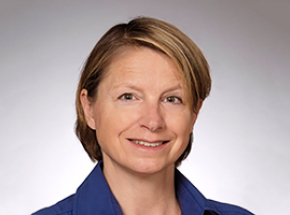
Suzanne Bodevin
Assistant professor.
- Economics and Management
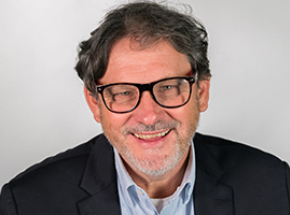
Waddick Doyle
Professor, program director, msc in strategic brand management.
- Communication, Media and Culture
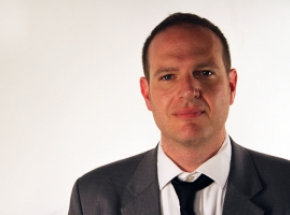
Robert Earhart
Associate professor.
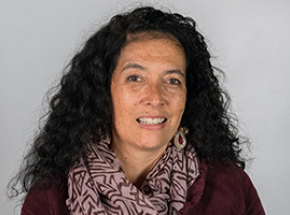
Tanya Elder
Assistant professor, program director, ma in global communications.
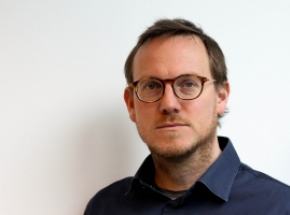
Oliver Feltham
- Comparative Literature and English
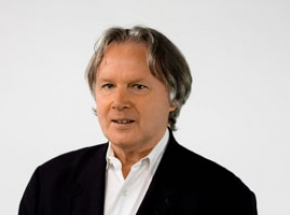
Matthew Fraser
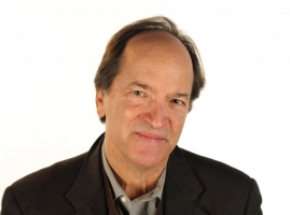
Hall Gardner
Professor emeritus of political science.
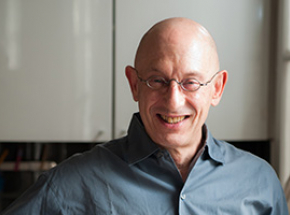
Philip Golub
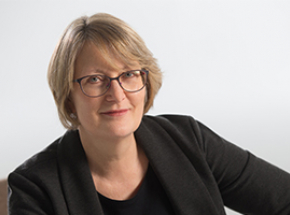
Gail Hamilton
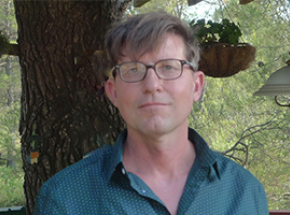
Jayson Harsin
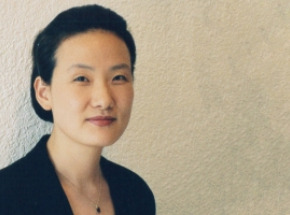
Associate Professor, Program Coordinator for Middle East Pluralities
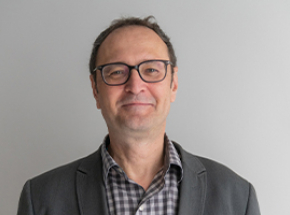
Stephane Malo
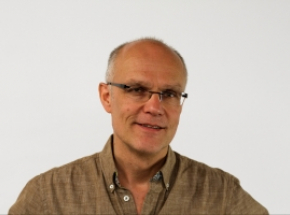
Justin Mcguinness
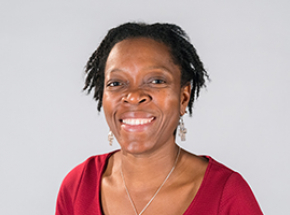
Evelyn Odonkor
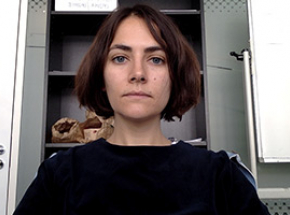
Noemie Oxley
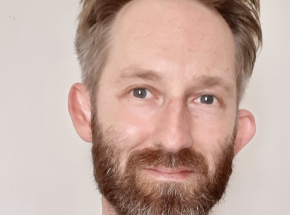
Robert Payne
Professor, department chair – communication, media and culture.
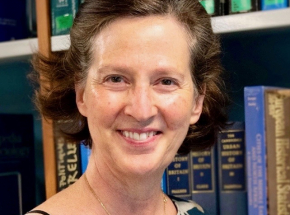
Susan Perry
Professor, program director mas in international affairs.
- Mentions Légales
Finding an Advisor
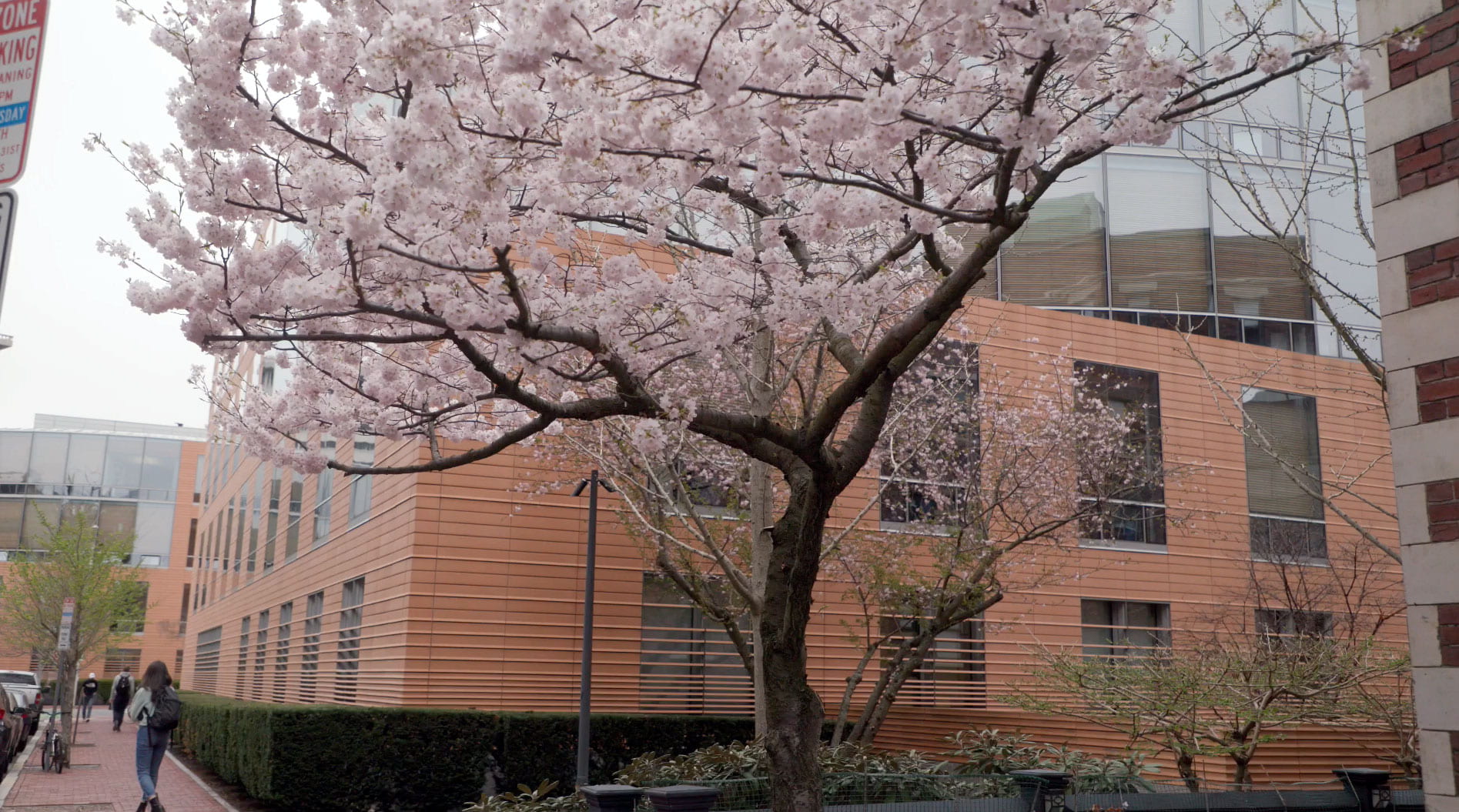
One of the most common questions the Undergraduate Program Office receives concerns how to find a suitable thesis adviser.
Government theses can be supervised by either faculty members or advanced graduate students in the Department. Often, undergraduates start their adviser search by talking with teachers whose classes they enjoyed. Was there a professor or TF who really inspired you, or with whom you felt you had established a good relationship? If so, you should feel free to reach out to them and ask if they’d be willing to sit down and discuss potential thesis projects.
The Government Department has also created a searchable database of potential thesis advisers. To use this tool, go to the “ People ” page on this website and under “Filter by Thesis Adviser,” choose “Potential Senior Thesis Adviser.” You’ll now see a list of all thesis advisers in the department, and you can search within this list by subject matter, geographic region of study, methodological approach, and affiliation by clicking on the appropriate keywords.
Your concentration adviser is a great resource for guidance about finding a thesis adviser and about the thesis-writing process generally. Feel free to reach out to them at any time to set up a meeting.
Initial Meetings with Potential Thesis Advisers
It is often helpful to identify several possible thesis advisers and meet with them to discuss your ideas. Keep in mind that just as important as finding someone who is knowledgeable about your topic is finding an adviser with whom you’ll work well. Feel free to ask potential advisers about their availability in the upcoming year, as well as their expectations from advisees.
In your initial meetings, you don’t have to be worried about your topic not yet being fully developed—in fact, it is in the earliest stages of thinking about a research question that such mentoring conversations can often be most helpful. Think of this initial meeting or series of meetings as a fact-finding mission. You’re just talking through a potential topic, and you don’t have to ask the first person you speak with to be your adviser (though it’s always a good idea to ask if they can recommend other people for you to speak with as well).
By the way, don’t worry about writing to either faculty or graduate students “out of the blue”; they are aware juniors will be searching for advisers and won’t be surprised at all to hear from you. In fact, you’ll likely find them to be very happy to chat with you, even if they ultimately don’t end up advising your thesis.
Timeline for Finding an Adviser
You should start trying to identify potential advisers early; the ideal time to begin looking is late in the fall semester or very early in the spring semester of your junior year. Keep in mind that some deadlines for summer research grants are due as early as mid-February of your junior year, and having an adviser on board by this point can simplify the process of applying for funding.
If you haven’t identified an appropriate thesis adviser by the end of your junior spring, please contact Dr. George Soroka , Assistant Director of Undergraduate Studies, to discuss your situation.
Deciding on an Adviser
As noted above, Government theses can be supervised by either faculty members or advanced graduate students in the Department. Depending on the project, it may even be possible to be advised by someone outside the Department, but you’ll need to talk this through with the DUS or ADUS and receive permission. Please note that joint concentrators typically have an adviser from each of their departments.
One question often asked is whether it’s better to have a faculty member or TF advising you. There is no clear answer; it truly depends on your topic and the person advising you. The one exception is if you know you want to go on for a PhD in the social sciences; in this case, having an established faculty member advise you (and hopefully write a strong letter of recommendation afterwards!) is preferable. Note, however, that many popular professors are forced to turn down advising requests each year, simply because too many students ask them. So again, it is in your interest to get the advising situation sorted as soon as possible.
Once you’ve found an appropriate thesis adviser, you should submit a signed thesis contract to the Government Undergraduate Office. (Note that there are different forms for TF and faculty advisers.)
The Importance of a Good Working Relationship with your Adviser
Without a doubt, establishing a good working relationship with your thesis adviser is one of the most critical factors for thesis success. The key to this is regular, forthright, and clear communication—by both parties. If you read through comments from past Hoopes Prize winners, they invariably talk about how important their advisers were in the thesis writing process. In contrast, poor thesis writing experiences are often linked to poor advising relationships. The best advice we can give you to speak to would-be advisers openly about your expectations and scholarly habits. Do you work best when you can sit with someone and throw ideas at the wall? Or do you need more directed guidance and deadlines to keep you on track? How often do you expect to meet with your adviser (we recommend meeting at least once every two weeks, and preferably even more frequently as the submission deadline approaches)? How available will she or he be in the summer, if you have questions while away from campus? All of these are things to discuss with your prospective adviser before you sign the advising contract.
To reiterate: once you find an adviser, you must have regular meetings, although the frequency of these meetings will vary over the course of the year and from student to student. It is almost always a good idea to schedule your next meeting before you leave any meeting. You should also be clear with your adviser from the very beginning and over the year about your needs and expectations. The thesis is your project and you must drive it. Y our adviser is an ally and a resource, but this is ultimately your project.

IMAGES
VIDEO
COMMENTS
Choosing a thesis advisor or dissertation advisor (often referred to as a dissertation chair) will have a significant impact on your entire dissertation writing experience, and for many years to come. For many doctoral students, their thesis advisor is their single greatest influence in graduate school. Selecting a thesis advisor is a big ...
By: Jennifer Casiano Finding the correct thesis adviser can be a bit problematic for first-year graduate students. It is a 5+ year commitment and it needs careful analysis. Finding a strong mentor can be the key to success for a graduate student, in combination with the positive influence of a research area that students are passionate about.
1. Identify potential advisors. Start your search by matching your interests to laboratories doing similar work. "I thought a lot about my research interests," says Jenna Cummings, a doctoral candidate in health psychology at the University of California, Los Angeles.
Likewise, "finding a Thesis advisor" would simply consist of checking all the offers for open Master thesis topics posted on university employees' doors. - O. R. Mapper. Feb 23, 2016 at 19:56. Often departments will have a few specialisations that most (if not all) of the academic staff will fall under in some way.
Choosing a dissertation advisor, therefore, is an extremely important decision for doctoral students, although it is not immutable, as will be discussed later. A student undertaking dissertation work needs an advisor who will be not only academically competent in a particular area but also willing to act as the student's advocate when ...
Talk to other students: Ask in-project students about their project advisors, research groups, and how they found their thesis advisor. Take a course and go to office hours: Your primary advisor will ideally be someone with whom you have taken a course. Generally, enrolling in smaller seminars is recommended as seminars provide more opportunity ...
The Government Department has also created a searchable database of potential thesis advisers. To use this tool, go to the " People " page on this website, scroll to the bottom of the right-hand column, and click on "Potential Senior Thesis Adviser.". You'll now see a list of all thesis advisers in the department, and you can search ...
2024; or students doing thesis in Fall 2024 would need to have a thesis advisors by the end of Fall 2023. By default, MArch I students are scheduled to do their theses in the Fall, unless their thesis semester is deferred via "spli ng" or from taking a leave of absence. The default thesis semester for MArch II students, is in the Spring.
Establish (and stick to) a regular communication cycle. Develop a clear project plan upfront. Be proactive in engaging with problems. Navigate conflict like a diplomat. 1. Clarify roles on day one. Each university will have slightly different expectations, rules and norms in terms of the research advisor's role.
Students are required to find a thesis advisor a year in advance of their thesis semester, in other words, in the semester preceding their thesis prep term*. This means that students must begin to think about their thesis topic and possible corresponding advisors at the start of their options studios cycle, or even earlier.
Choosing a thesis advisor is the most important decision of your life--perhaps more important than choosing a spouse--because your choice affects everything you will do in your career. Indeed, choosing an advisor is similar to getting married: it is making a long-term commitment. Unlike marriage, however, a good advising relationship should end ...
To list all thesis advisors, please click "Show Results" without entering any search criteria. Find Thesis Advisors Find PhD and Masters' by Research Thesis Advisors Search By Name of Thesis Advisor Search By Faculty, Research, or Both To list all.
Rewrite them while the discussion is still fresh in your mind. Lastly, your thesis advisor is human; you may not agree with his suggestions every step of the way. Maintain open and honest communication. If there is an area of disagreement, discuss it with him or her. Don't let negative feelings fester.
Advising Guide for Research Students. Success as a graduate student is a shared responsibility between students and faculty. For research students, the relationship with your research advisor, also known as your special committee chair, is extremely important. Your responsibility to identify and choose an advisor is one of the most critical ...
Find an advisor that will ensure that you do so quickly. Learn to give talks. Good ones. Find an advisor that will help you develop communication and presentation skills. As a subset of this, do some math that is easily described to others. They don't have to understand the math, just the big picture.
Find Your Thesis Advisor. If you are completing a thesis-based graduate program you will need to conduct independent research under the supervision of your thesis advisor. Your thesis advisor is there to support and guide you in the research process, offering their expertise and encouraging you on the best ways to present your findings.
Step 2: Figure out what classes they teach. This is an important step because ideally, you will build a relationship with your thesis advisor before you ever pop the question, "Will you be my thesis advisor?" Check the departmental web pages for this information. Search the course catalog to see if any permanent classes are associated with them.
It goes without saying that you should make sure you do a good job in the class, because if you do poorly, it is likely that the potential advisor will not be interested in taking you on as a student. 2) Track record and reputation. It is important that your advisor be respected as a scholar.
One of the most common questions the Undergraduate Program Office receives concerns how to find a suitable thesis adviser. Government theses can be supervised by either faculty members or advanced graduate students in the Department. Often, undergraduates start their adviser search by talking with teachers whose classes they enjoyed. Was there a professor or TF...
2. Communicate Well. Clear, open communication is key to a good working relationship between a graduate school student and her thesis advisor. Honesty and openness can enable a more successful, pleasant thesis research experience. If some points of disagreement crop up, discuss them fully so unpleasant feelings do not have a chance to fester.
First, find a topic that you are interested in and motivated to work on. And then, try to find profs in your department that work on topics similar to what you plan to work on. Second, try to figure out how you would like to work (and this is very important).
Most students find thesis advisors by reaching out to faculty from SEAS, but others find advisors at the Medical School or other FAS departments. Some common places to find research labs include (see appendix 5): the engineering faculty pages within SEAS, the Wyss Institute, the Broad
I would reach out to professors that you've had for a class (and have done well in that class). Also, they could be on holiday and might take a few days to respond if they aren't checking their email every day. Contact your department's chair and ask them to either assign a supervisor to you or to suggest an alternative.
thesis advisor by this date (add/drop deadline) must drop Ec 985 and the thesis. Mid-October Have your data in hand and have plans for the type of analysis you'll be doing. November 25 Theses for Ec 990 (off-cycle) students due by 4pm. Early December Turn in a 25-page thesis draft to your Ec 985 instructor and give a copy to your advisor.